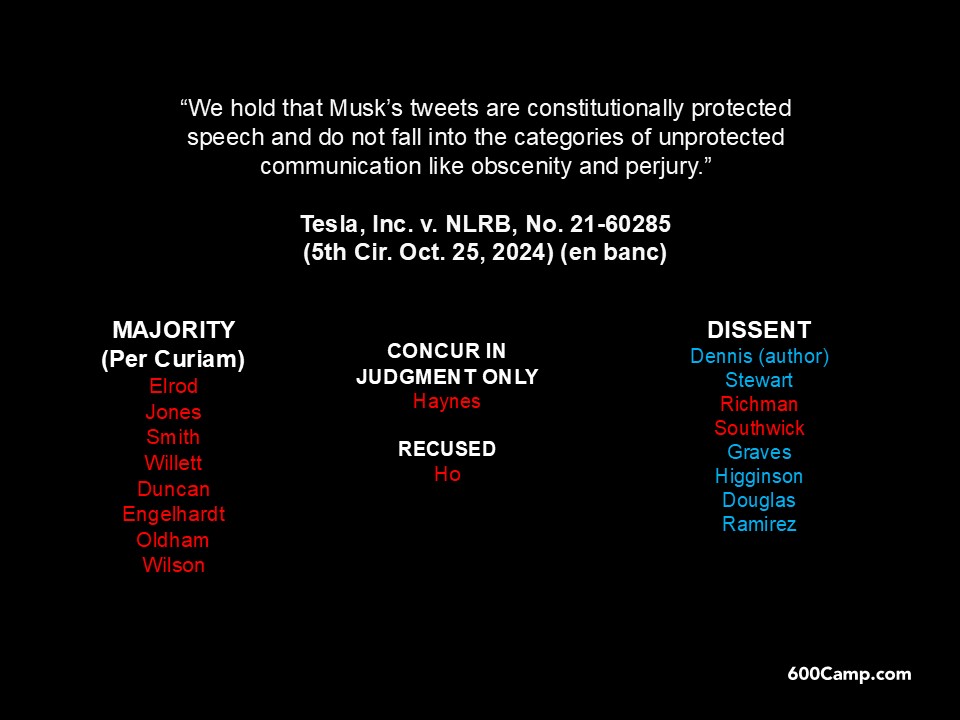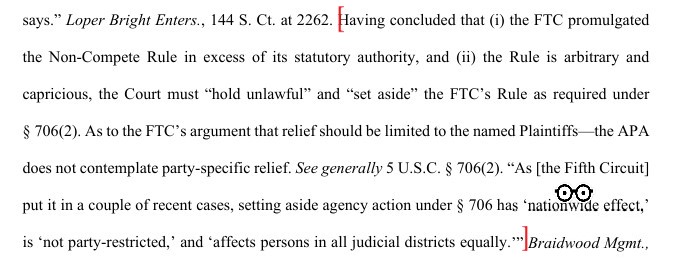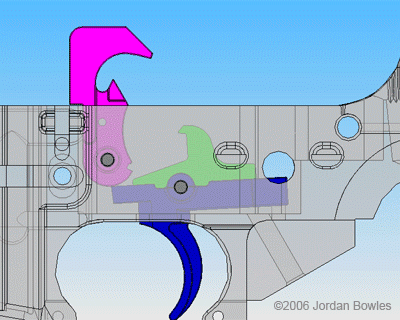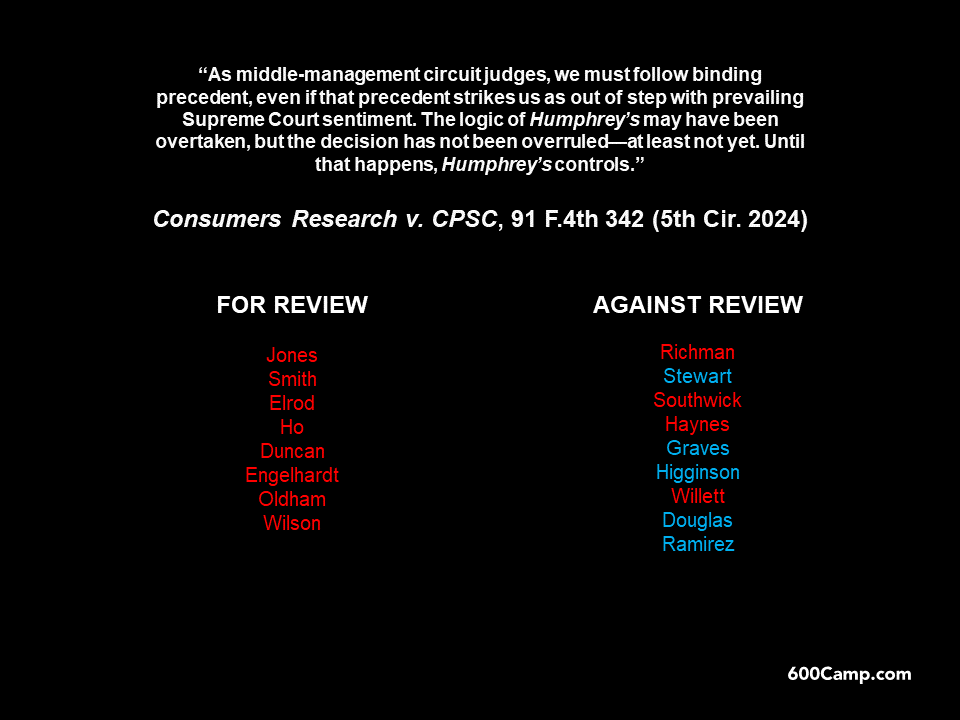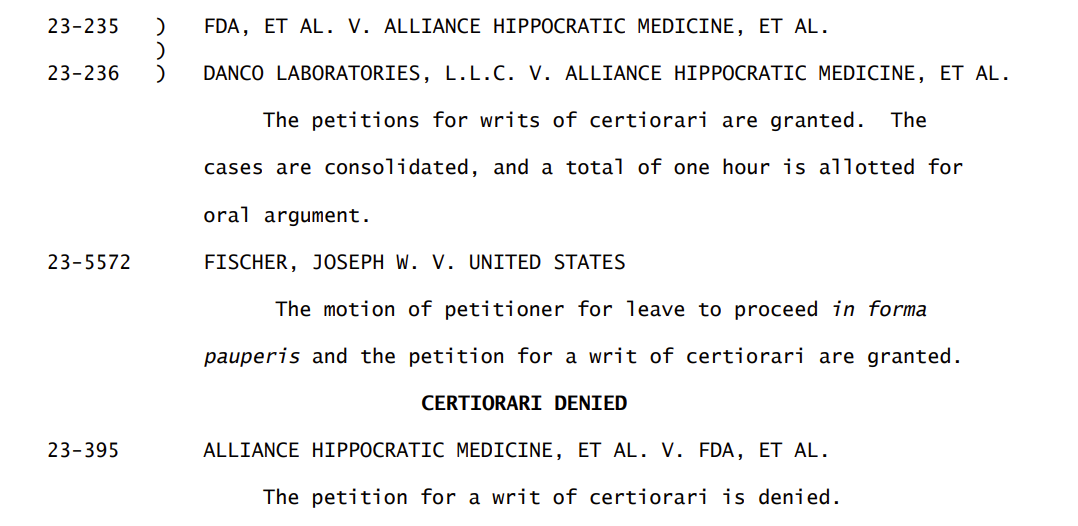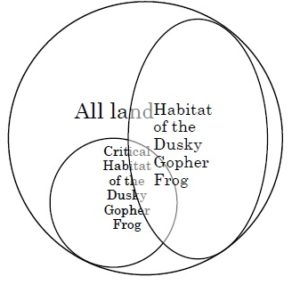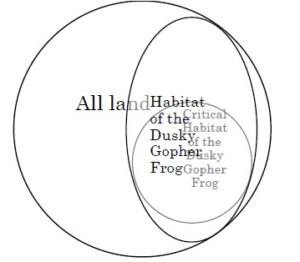The Fifth Circuit denied en banc review of ExxonMobil v. NLRB, a dispute about the NLRB’s decision to vacate an earlier decision and retry the matter (decried by Exxon as a political maneuver; defended by the NLRB as the result of a conflict for a board member involved in the earlier proceeding). A dissent from the denial of en banc review states the case against excessive “independence” for independent agencies, and also has some observations about party-presentation as applied to the evolution of the parties’ arguments during this long-lived case. No. 23-60495 (Dec. 17, 2025).
Category Archives: Administrative Law
 The reticulated python (right) can be found in South Asia. A “reticulated statute” was at issue in Baylor All Saints Medical Center v. Kennedy, in which the Fifth Circuit concluded that the district court had no jurisdiction to hear a Medicare-reimbursement dispute when agency review had not been exhausted. The Court noted: “To be sure, a court may waive the administrative exhaustion requirement if administrative remedies would be exhaustive … Howeer, the court does not reach [that issue] because the case does not satisfy the ‘jurisdictional requirement that claims be presented to the agency.'” No. 24-10934 (Dec. 9, 2025).
The reticulated python (right) can be found in South Asia. A “reticulated statute” was at issue in Baylor All Saints Medical Center v. Kennedy, in which the Fifth Circuit concluded that the district court had no jurisdiction to hear a Medicare-reimbursement dispute when agency review had not been exhausted. The Court noted: “To be sure, a court may waive the administrative exhaustion requirement if administrative remedies would be exhaustive … Howeer, the court does not reach [that issue] because the case does not satisfy the ‘jurisdictional requirement that claims be presented to the agency.'” No. 24-10934 (Dec. 9, 2025).
 A challenging administrative law issue, about certain airline fee-disclosure requirements, produced a panel opinion that agreed with FAA’s authority but remanded for consideration of new information. The Fifth Circuit recently voted to take the case en banc.
A challenging administrative law issue, about certain airline fee-disclosure requirements, produced a panel opinion that agreed with FAA’s authority but remanded for consideration of new information. The Fifth Circuit recently voted to take the case en banc.
 In State of Texas v. EPA, the Fifth Circuit upheld the EPA’s authority to substantively evaluate and disapprove a State Implementation Plan under the Clean Air Act’s Good Neighbor Provision. The court confirmed that EPA may require SIPs to address both “significant[] contribut[ion] to nonattainment” and independent “interfere[nce] with maintenance” in other states, including areas not formally designated nonattainment, and emphasized that “The text puts EPA in the driver’s seat for evaluating a SIP’s compliance with the CAA.”
In State of Texas v. EPA, the Fifth Circuit upheld the EPA’s authority to substantively evaluate and disapprove a State Implementation Plan under the Clean Air Act’s Good Neighbor Provision. The court confirmed that EPA may require SIPs to address both “significant[] contribut[ion] to nonattainment” and independent “interfere[nce] with maintenance” in other states, including areas not formally designated nonattainment, and emphasized that “The text puts EPA in the driver’s seat for evaluating a SIP’s compliance with the CAA.”
The court also approved EPA’s reliance on up-to-date interstate transport modeling and a 2017 projection year as reasonable, reiterating that “nothing in the statute places the EPA under an obligation to provide specific metrics to States before they undertake to fulfill their good neighbor obligations.” Because Texas’s SIP lacked analysis quantifying downwind impacts and ignored maintenance receptors, EPA’s disapproval was neither arbitrary nor capricious. 16-60670; Sept. 22, 2025. A dissent would vacate the EPA’s action for missing the 12-month deadline established by a statute.
In Texas Corn Producers v. U.S. EPA, the EPA disputed the plaintiffs’ standing; among its arguments it “counters that automakers might respond to the inflated CAFE stringency in four different ways—not all of which decrease gasoline demand. Thus, EPA contends, the petitioners’ alleged injury is too speculative to support Article III standing.”
The Fifth Circuit expressed skepticism, noting that this argument was not consistent with the purpose of the challenged regulation in the first instance: “But EPA misses the forest for the trees. Indeed, reducing fuel demand is the core purpose of the CAFE standards. As NHTSA explained in its latest CAFE rulemaking, the current standards are estimated to ‘reduce gasoline consumption by 64 billion gallons relative to reference baseline levels for passenger cars and light trucks … through calendar year 2050.’ If EPA additionally increases CAFE stringency through the backdoor, then gasoline consumption will predictably fall even further.” No. 24-60209 (June 24, 2025) (footnote omitted, emphasis in original).
While the long-running friction between the Fifth Circuit and U.S. Supreme Court about standing did not produce cert grants on the topic this term (after last year’s 9-0 reversal on standing in theg mifepristone litigation), three recent Supreme Court reviews of Fifth Circuit opinions involve similar topics, with mixed results:
- The Supreme Court held that the Fifth Circuit erred by hearing a challenge to a Nuclear Regulatory Commission decision about a waste facility, when the challenger – the State of Texas – had not been a party to the agency proceeding. NRC v. Texas, No. 23-1300 (U.S. June 18, 2025).
- In EPA v. Calumet, the Supreme Court held that the Fifth Circuit erred because challenges to the EPA’s denials of small-refinery exemption petitions under the Clean Air Act belong only in the D.C. Circuit. While each such denial is “only locally or regionally applicable” because it applies to a specific refinery, they fall within the statute’s “nationwide scope or effect” exception when they are “based on a determination of nationwide scope or effect.” No. 23-1229 (U.S. June 18, 2025); cf. Oklahoma v. EPA, No. 23-1067 (U.S. June 18, 2025) (holding that challenges to state-specific emission plans belonged in a regional circuit, not the D.C. Circuit, because they were “locally or regionally applicable action”).
- And in FDA v. R.J. Reynolds, the Supreme Court affirmed the Fifth Circuit’s venue decision about a retailer’s challenge to the FDA’s denial of a permit about a “vaping” product. he FDA argued that only the manufacturer (the applicant) was “adversely affected” and thus eligible to seek judicial review, and that the case should be dismissed or transferred to a different circuit. The Fifth Circuit denied the FDA’s motion and the Supreme Court agreed, olding that retailers who would sell a new tobacco product but for the FDA’s denial are “adversely affected” and may seek judicial review under the TCA. No. 23-1187 (June 20, 2025).
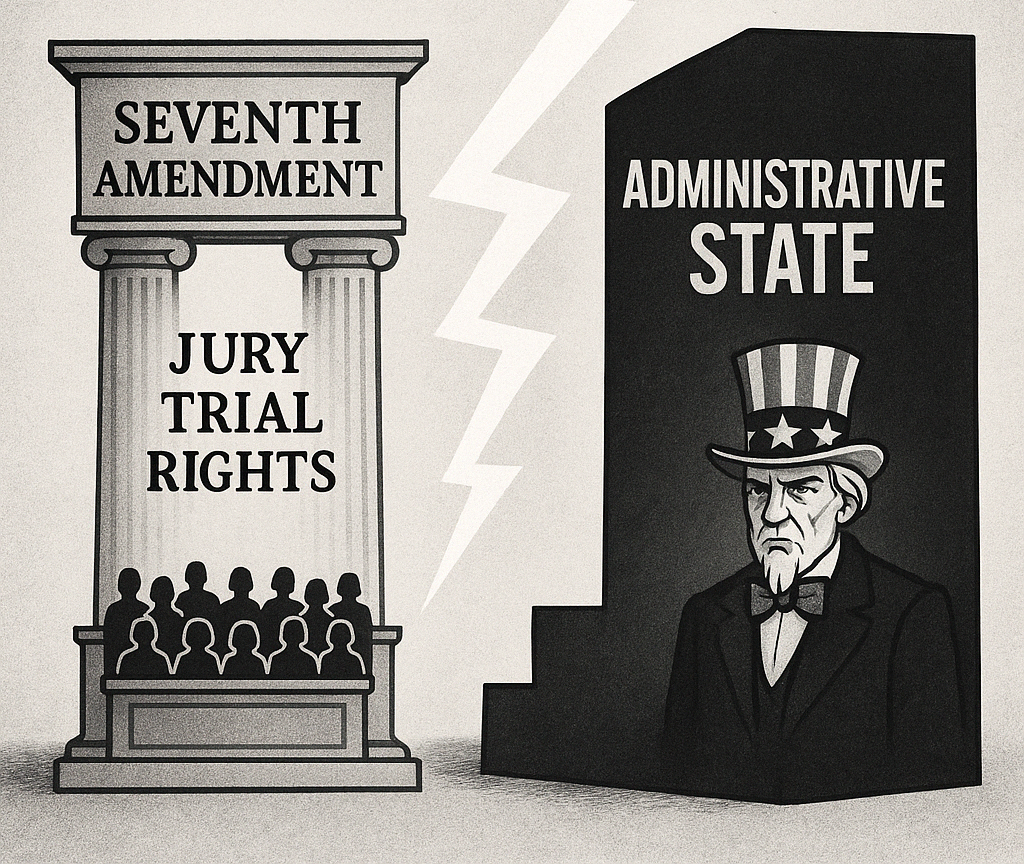 After affirmance of the Fifth Circuit in SEC v. Jarkesy, that Court returned to the interaction between the Seventh Amendment and the admininistrative state in AT&T Inc. v. FCC. The specific issue was whether the FCC’s in-house enforcement procedures for imposing civil penalties violate the constitutional right to a jury trial, as clarified by Jarkesy.
After affirmance of the Fifth Circuit in SEC v. Jarkesy, that Court returned to the interaction between the Seventh Amendment and the admininistrative state in AT&T Inc. v. FCC. The specific issue was whether the FCC’s in-house enforcement procedures for imposing civil penalties violate the constitutional right to a jury trial, as clarified by Jarkesy.
The court held that the FCC’s process ran afoul of the Seventh Amendment, emphasizing that these civil penalties are “the prototypical common law remedy,” designed to punish or deter, and thus “a type of remedy at common law that could only be enforced in courts of law.” In particular, and FCC enforcement action under section 222 of the Telecommunications Act resembles a negligence action, as it centers on whether the carrier took “reasonable measures” to protect customer data, notwithstanding the technical nature of the factual situation.
The Court also rejected the FCC’s argument that the availability of a later trial in federal court—after the agency has already found liability and imposed penalties—satisfies the Seventh Amendment. In such a trial, explained the Court, the defendant cannot challenge the legal conclusions of the agency, only the factual basis, and that this structure forces companies to choose between a jury trial and the ability to challenge the legality of the order. No. 24-60223, Apr. 17, 2025. (A third judge concurred without opinion).
 The question whether an administrative agency has unfairly “changed the rules” is central in many challenges to regulations. On April 2, the Supreme Court addressed a particularly hard-fought dispute about that issue in FDA v. Wages & White Lion Investments, LLC, a case about the FDA’s denial of marketing authorization for flavored e-cigarette products.
The question whether an administrative agency has unfairly “changed the rules” is central in many challenges to regulations. On April 2, the Supreme Court addressed a particularly hard-fought dispute about that issue in FDA v. Wages & White Lion Investments, LLC, a case about the FDA’s denial of marketing authorization for flavored e-cigarette products.
The en banc Fifth Circuit held that the FDA acted arbitrarily and capriciously by applying different standards than those stated in its predecisional guidance documents, and by failing to review marketing plans previously deemed critical.
The Supreme Court held that the FDA’s denial orders were consistent with its predecisional guidance about scientific evidence, comparative efficacy, and device type. The Court concluded that the FDA’s guidance documents did not commit to any specific type of study, and that the FDA’s requirement for manufacturers to compare their flavored products to tobacco-flavored products was a natural consequence of its guidance. No. 23-1038 (U.S. Apr. 2, 2025).
 The Supreme Court today reversed the Fifth Circuit’s invalidation of an ATF regulation about “ghost guns,” noting that the relevant statute applied to “any weapon (including a starter gun) which will or is designed to or may readily be converted to expel a projectile by the action of an explosive.”
The Supreme Court today reversed the Fifth Circuit’s invalidation of an ATF regulation about “ghost guns,” noting that the relevant statute applied to “any weapon (including a starter gun) which will or is designed to or may readily be converted to expel a projectile by the action of an explosive.”
That grant of authority is readily distinguished from last Term’s opinion in Cargill v. Garland, which involved a statute focused on a specific type of firing mechanism.
In State of Texas v. Trump, the Fifth Circuit considered whether an executive order by President Biden, mandating a $15 minimum wage for federal contractors, fell within his authority under the Federal Property and Administrative Services Act (FPASA). That statute lets the President “prescribe policies and directives that the President considers necessary to carry out this subtitle,” provided that these policies are consistent with the Act’s objectives. The court found that the Executive Order’s purpose of promoting “economy and efficiency in procurement by contracting with sources that adequately compensate their workers” aligns with the FPASA’s goals, and that the minimum-wage requirement was within the scope of his discretion. No. 23-40671 (Feb. 4, 2025).
 In National Automobile Dealers Assoc. v. FTC, the Fifth Circuit vacated the FTC’s “Combating Auto Retail Scams Trade Regulation Rule” (CARS Rule) because the FTC failed to to issue an advance notice of proposed rulemaking (ANPRM) as required by its own regulations.
In National Automobile Dealers Assoc. v. FTC, the Fifth Circuit vacated the FTC’s “Combating Auto Retail Scams Trade Regulation Rule” (CARS Rule) because the FTC failed to to issue an advance notice of proposed rulemaking (ANPRM) as required by its own regulations.
The court rejected the FTC’s argument that the Dodd-Frank Act exempted it from the ANPRM requirement. While the Dodd-Frank Act allows the FTC to use regular APA procedures for rulemaking concerning auto dealers, it does not eliminate the FTC’s internal procedural safeguards. A dissent argued that the petitioners failed to show prejudice from the lack of an ANPRM, given their extensive participation in the rulemaking process. No. 24-60013, Jan. 27, 2025
 Airlines for America v. DOT addressed when additional rulemaking notice is called for because of new factual information. The Fifth Circuit concluded that the Department of Transportation (DOT) had relied on new data from a study study, to justify its rule on airline fee disclosures without providing an opportunity for public comment on this data.
Airlines for America v. DOT addressed when additional rulemaking notice is called for because of new factual information. The Fifth Circuit concluded that the Department of Transportation (DOT) had relied on new data from a study study, to justify its rule on airline fee disclosures without providing an opportunity for public comment on this data.
This omission was material because the study supplied basic assumptions used by the DOT to estimate the net benefits of the rule, which ranged from $30 million to $254 million annually. The Court stated that the DOT’s reliance on this new data without public input constituted a “serious procedural error.” Nos. No. 24-60231 and 24-60373 (Jan. 28, 2025).
While the rescission of the recent “funding freeze” memo seems to end the present dispute, history teaches that the issues will return in new form, as was seen with the travel ban at the start of the first Trump Administration, vaccine mandates, and the efforts of the Biden Administration to forgive substantial amounts of student-loan observations. “Round Two” will doubtless feature a more focused assertion of executive power by the Trump Administration, and also more sophisticated challenges to that assertion – including the selection of substantive legal arguments and the identification of plaintiffs who have strong standing positions.
A new lawsuit brought by several state AGs expands the legal claims about the “funding freeze” to include several constitutional issues – whether those additional issues survive standing / justiciability challenges remains to be seen. To date, the Administrative Procedure Act claims have focused on OMB’s authority and not the longer-term issue of just what exactly agencies are supposed to do while the “freeze” is in place – and how that comports with the APA and those agencies’ enabling statutes and mandates.
Today’s ultra-aggressive “funding freeze” memo appears to be right out of the Dobbs playbook – take an action that is not allowed under current law (the Mississippi law at issue in that case, which was plainly unconstitutional under Roe/Casey) and present it to the modern-day Supreme Court conservative supermajority.
Understandably, public comment on the memo has focused on the Nixon-era Impoundment Act. But at the courthouse, the first filed lawsuit focused on the old warhorse of the Administrative Procedure Act – the law that repeatedly stymied aggressive administrative-agency action in both the Biden and the first Trump administration.
That’s wise as a matter of substantive law – there are fruitful arguments to be made under the APA – and as a matter of avoiding the Dobbs playbook of presenting a flashy constitutional issue. “Another” APA case is simply a less compelling topic for the Supreme Court to address.
 Illustrating the choppy waters that can surround a nationwide injunction, in December, Fifth Circit judges reached three different conclusions about whether to stay the Corporate Transparency Act and related administrative rules. The motions-panel majority held:
Illustrating the choppy waters that can surround a nationwide injunction, in December, Fifth Circit judges reached three different conclusions about whether to stay the Corporate Transparency Act and related administrative rules. The motions-panel majority held:
The district court concluded that both are unconstitutional and issued nationwide injunctions against each, despite no party requesting it do so and despite every other court to have considered this issue tailoring relief to the parties before it or denying relief altogether.
The third member of the motions panel concurred in part:
[She] agrees for an expedited appeal and agrees that a national injunction is not appropriate here, so she would grant a temporary stay of the preliminary injunction pending the decision of the merits panel regarding whether to deny a stay pending appeal as to the non-parties. However, she would deny the temporary stay as to the parties (while, of course, deferring to the merits panel on this point as well), including the members of NFIB, as long as their identities are disclosed to the government.
A later per curiam order, which may have issued from the merits panel, or may simply reflect communication with that panel, reached a different conclusion:
The merits panel now has the appeal, which remains expedited, and a briefing schedule will issue forthwith. However, in order to preserve the constitutional status quo while the merits panel considers the parties’ weighty substantive arguments, that part of the motions-panel order granting the Government’s motion to stay the district court’s preliminary injunction enjoining enforcement of the CTA and the Reporting Rule is VACATED.
These changes show how minor variations in panel makeup can have profound consequences when nationwide equitable relief is at issue. (The party-presentation issue referred to by the motions-panel majority is also addressed in my recent Cornell Law Review essay.)
 In Alliance for Fair Board Recruitment v. SEC, the en banc Fifth Circuit held that the SEC should not have approved Nasdaq’s “Board Diversity Proposal.”
In Alliance for Fair Board Recruitment v. SEC, the en banc Fifth Circuit held that the SEC should not have approved Nasdaq’s “Board Diversity Proposal.”
The Court reminded that the Act is focused on protecting investors from speculative, manipulative, and fraudulent practices, and promoting competition in the securities market; therefore: “SEC may not approve even an a disclosure rule unless it can establish the rule has some connection to an actual, enumerated purpose of the Act.” It rejected the SEC’s argument that the proposal would satisfy investor demand for diversity information, holding: “The purpose of satisfying investor demand for any and every kind of information about exchange-listed companies is not remotely similar to any of those stated purposes.”
Cf. McCullough v. Maryland,17 U.S. 316 (1819) (“Among the enumerated powers, we do not find that of establishing a bank or creating a corporation. But there is no phrase in the instrument which, like the articles of confederation, excludes incidental or implied powers; and which requires that everything granted shall be expressly and minutely described.”).
The Court also found support for its holding in the major questions doctrine, given the expansive regulatory authority that it concluded would be needed for the SEC to implement the proposal. A dissent argued that the SEC had received substantial evidence that investors sought standardized information on board diversity, and noted the SEC’s limited statutory authority to review the rules of Nasdaq, a distinct and private entity (albeit one that is heavily regulated). No. 21-60626, Dec. 11, 2024 (9-8 vote).
 In Van Loon v. Dep’t of the Treasury, the Fifth Circuit addressed the Treasury Department’s authority to regulate “property” under the International Emergency Economic Powers Act. After a detailed explanation of the blockchain technology involved, the Court held that certain “immutable smart contracts” do not qualify as “property” under IEEPA. The Court emphasized that “property” must be capable of being owned, and since the immutable smart contracts are unchangeable and unremovable, they cannot be owned or controlled by any entity, including their creators.
In Van Loon v. Dep’t of the Treasury, the Fifth Circuit addressed the Treasury Department’s authority to regulate “property” under the International Emergency Economic Powers Act. After a detailed explanation of the blockchain technology involved, the Court held that certain “immutable smart contracts” do not qualify as “property” under IEEPA. The Court emphasized that “property” must be capable of being owned, and since the immutable smart contracts are unchangeable and unremovable, they cannot be owned or controlled by any entity, including their creators.
The Court further clarified that even under the Treasury’s own regulatory definitions, the immutable smart contracts do not fit within the scope of “property.” The court noted that these smart contracts are neither contracts nor services, as they do not involve any human effort or control once they are deployed. No. 23-50669 (Nov. 26, 2024).
 In State of Texas v. U.S. Dep’t of Homeland Security, the Fifth Circuit addressed a challenge by Texas to a federal plan to cut razor wire installed by Texas at a border crossing. A 2-1 opinion ordered entry of a preliminary injunction against the planned wire-cutting.
In State of Texas v. U.S. Dep’t of Homeland Security, the Fifth Circuit addressed a challenge by Texas to a federal plan to cut razor wire installed by Texas at a border crossing. A 2-1 opinion ordered entry of a preliminary injunction against the planned wire-cutting.
The panel majority held the Administrative Procedure Act “clearly waives the United States’ sovereign immunity for Texas’s common law claims,” allowing Texas to seek injunctive relief against federal agencies and officers. In particular, Texas’s claims sought non-monetary relief and were based on the destruction of its property, which falls under the definition of “agency action” in the APA.
The majority also held that Texas showed a strong likelihood of success on its state law trespass-to-chattels claim–the concertina wire is state property, and Texas had shown that the federal agents’ actions were not justified by any exigency or statutory authority. As a result, the court granted Texas’s request for a preliminary injunction, enjoining federal agents from damaging or interfering with Texas’s concertina wire fence.
A dissent argued that Texas did not show the alleged “wire-cutting policy” constituted final agency action, which is a prerequisite for judicial review under the Administrative Procedure Act (APA). It also concluded that Texas’s state law claims were barred by intergovernmental immunity, as applying Texas tort law to federal agents would improperly control federal operations. No. 23-50869 (Nov. 27, 2024).
In a per curiam opinion joined by eight judges, the Fifth Circuit held in Tesla v. NLRB that an NLRB decision about unfair labor practices by Tesla would be vacated and remanded for further proceedings:
We hold that Musk’s tweets are constitutionally protected speech and do not fall into the categories of unprotected communication like obscenity and perjury. And the Board does not dispute the general rule that it (like every other part of the Government) is powerless to delete protected speech.
But nine other judges didn’t join that opinion. As detailed below, Judge Haynes concurred in the judgment only, and eight judges joined a dissent. So what the NLRB is supposed to do on remand is not entirely clear.
 Restaurant Law Center v. U.S. Dep’t of Labor presents a case study in review of an agency regulation after Loper-Bright:
Restaurant Law Center v. U.S. Dep’t of Labor presents a case study in review of an agency regulation after Loper-Bright:
- 29 U.S.C. § 203(t) says, in relevant part, that a “tipped employee” means “any employee engaged in an occupation in which he customarily and regularly receives more than $30 a month in tips.” (emphasis added).
- The Labor Department regulation implementing that statute focused on the amount of time, during the work period, that the employee engaged in tip-eligible activity; in summary: “An employer may take the tip credit for tip-producing work. But if more than 20 percent of an employee’s workweek is spent on directly supporting work, the employer cannot claim the tip credit for that excess. Nor can directly supporting work be performed for more than 30 minutes at any given time. An employer may not take the tip credit for any time spent on work not part of the tipped occupation.” (footnote omitted).
- Without the Chevron backstop, that regulation was invalid because it didn’t fit the statute’s unambiguous terms: “'[E]ngaged in an occupation in which [the employee] customarily and regularly receives more than $30 a month in tips’ cannot be twisted to mean being ‘engaged in duties that directly produce tips, or in duties that directly support such tip-producing duties (but only if those supporting duties have not already made up 20 percent of the work week and have not been occurring for 30 consecutive minutes) and not engaged in duties that do not produce tips.'”
“In short, as to supporting work, the Final Rule replaces the Congressionally chosen touchstone of the tip-credit analysis—the occupation—with one of DOL’s making—the timesheet.” No. 23-505762 (Aug. 23, 2024).
In the high-profile Dallas case challenging the FTC’s new rule about noncompete enforcement, Judge Ada Brown ruled for the plaintiffs in all respects. Ryan LLC v. FTC (N.D. Tex. Aug. 20, 2024). The opinion sidesteps nagging questions about the propriety of a nationwide injunction by focusing on the plain terms of the Administrative Procedure Act:
I take the reins in this Bloomberg article today about the U.S. Chamber of Commerce choosing to file lawsuits about administrative-agency rules in Texas / the Fifth Circuit.
 A high-ranking sergeant in the Armed Forces has a lot of chevrons (right). So too, today’s federal courts, after the overruling of Chevron. In Utah v. Su, the Fifth Circuit remanded a pending case that presented a post-Chevron issue of regulatory authority, reasoning:
A high-ranking sergeant in the Armed Forces has a lot of chevrons (right). So too, today’s federal courts, after the overruling of Chevron. In Utah v. Su, the Fifth Circuit remanded a pending case that presented a post-Chevron issue of regulatory authority, reasoning:
Whatever efficiency or economy is gained by taking up the parties’ invitation to decide their dispute in light of the intervening changes, both we and the circuit at large would be better served by the slight delay occasioned by remanding to the district court for its reasoned judgment.
No. 23-11097 (July 18, 2024).
Late last week, Judge Ada Brown from the Northern District of Texas held that the FTC exceeded its authority by its new rule about noncompetition agreements, granted a preliminary injunction, and set the matter for trial in late August. Notably, as of now, the relief granted does not include a nationwide injunction about the rule.
Fifth Circuit affirmed in SEC v. Jarkesy:
A defendant facing a fraud suit has the right to be tried by a jury of his peers before a neutral adjudicator. Rather than recognize that right, the dissent would permit Congress to concentrate the roles of prosecutor, judge, and jury in the hands of the Executive Branch. That is the very opposite of the separation of powers that the Constitution demands. Jarkesy and Patriot28 are entitled to a jury trial in an Article III court.
No. 22-859 (U.S. June 27, 2024).
I didn’t really understand the issues in the bump-stock case until I saw the below graphic in Judge Elrod’s majority opinion for the en banc Fifth Circuit. Once I saw that, I realized why ATF had gone out over its skiis, and why the Supreme Court affirmed today.
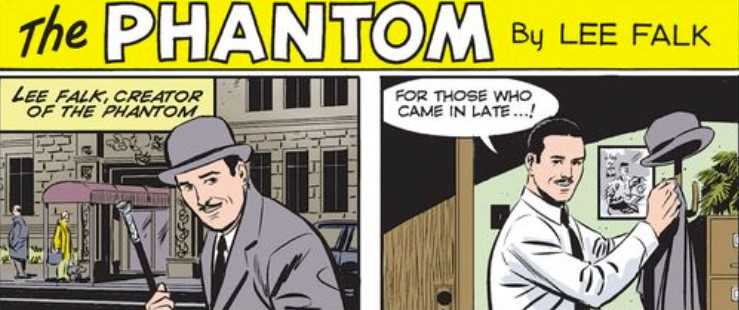 Longtime fans of the Phantom comic strip know that, when the plot becomes particularly complex, the strip’s author will make a cameo and give an update, announced by the phrase “For Those Who Came in Late!” In that spirit, 600Camp provides an update about the ongoing litigation about a CFPB rule involving credit-card late fees:
Longtime fans of the Phantom comic strip know that, when the plot becomes particularly complex, the strip’s author will make a cameo and give an update, announced by the phrase “For Those Who Came in Late!” In that spirit, 600Camp provides an update about the ongoing litigation about a CFPB rule involving credit-card late fees:
- On May 7, President Biden touted the rule in his State of the Union address.
- May 10, Judge Pittman enjoined the rule, based on a Fifth Circuit case about the CFPB’s funding that the Supreme Court overruled a few days later;
- On May 28, Judge Pittman granted the CFPB’s renewed motion to transfer the case to the District of Columbia (after an earlier transfer order was reversed by the Fifth Circuit, based on the procedural interplay between the injunction application and transfer motion);
- A new mandamus petition followed, leading to an administrative stay of the transfer order until mid-June along with a request for a reponse to the petition.
 “Double, double, toil and trouble,” chanted the three witches of Macbeth. “Double insulated,” said the Fifth Circuit in CFSA v. CFPB, holding that the Consumer Financial Protection Bureau’s funding mechanism was so far removed from Congress’s ordinary appropriations process that it violated the Appropriation Clause of the Constitution. Parting company with the above, the Supreme Court didn’t use the word “double” in reversing the Fifth Circuit, and holding that the CFPB is appropriately funded, considering history and practicality. CFPB v. CFSA, No. 22-448 (U.S. March 16, 2024).
“Double, double, toil and trouble,” chanted the three witches of Macbeth. “Double insulated,” said the Fifth Circuit in CFSA v. CFPB, holding that the Consumer Financial Protection Bureau’s funding mechanism was so far removed from Congress’s ordinary appropriations process that it violated the Appropriation Clause of the Constitution. Parting company with the above, the Supreme Court didn’t use the word “double” in reversing the Fifth Circuit, and holding that the CFPB is appropriately funded, considering history and practicality. CFPB v. CFSA, No. 22-448 (U.S. March 16, 2024).
The Fifth Circuit’s recent en banc vote in Consumers’ Research v. CPSC, an unsuccessful constitutional structure to the Consumer Product Safety Commission in light of recent Supreme Court precedent, is summarized in the below chart. The vote was accompanied by a concurrence and two dissenting opinions.
In a muscular display of appellate review, in Career Colleges & Schools of Texas v. U.S. Dep’t of Educ., the Fifth Circuit:
- Disagreed with the district court’s conclusion that an association of career schools lacked standing due to a lack of immediate irreparable injury, identifying three types of injury suffered as a result of new DOE regulations about certain defenses to student-loan repayment;
- Concluded that, as a matter of law, the association had satisfied the requirements for a preliminary injunction;
- Gave the resulting injunction nationwide effect; and
- Ordered: “The stay pending appeal remains in effect until the district court enters the preliminary injunction.”
No. 23-50491 (April 4, 2024).
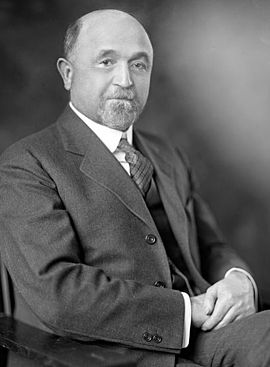 To the right appears William Humphrey, who like William Marbury, is known to history as the subject matter of a famous opinion. President Roosevelt’s efforts to remove Humphrey from the Federal Trade Commission led to the 1935 Supreme Court case of Humphrey’s Executor v. United States, about constitutional limits on the structure of administrative agencies. (Humphrey died during the litigation so his executor continued with the matter). In Consumers’ Research v. CPSC, the Fifth Circuit summarized the current state of the issue addressed by Humphrey’s Executor as follows:
To the right appears William Humphrey, who like William Marbury, is known to history as the subject matter of a famous opinion. President Roosevelt’s efforts to remove Humphrey from the Federal Trade Commission led to the 1935 Supreme Court case of Humphrey’s Executor v. United States, about constitutional limits on the structure of administrative agencies. (Humphrey died during the litigation so his executor continued with the matter). In Consumers’ Research v. CPSC, the Fifth Circuit summarized the current state of the issue addressed by Humphrey’s Executor as follows:
The Humphrey’s exception traditionally “has applied only to multimember bodies of experts.” Sitting en banc, we recently described the exception like this: Congress’s decision “limiting the President to ‘for cause’ removal is not sufficient to trigger a separation-of-powers violation.” Instead, for-cause removal creates a separation-of-powers problem only if it “combine[s]” with “other independence-promoting mechanisms” that “work[] together” to “excessively insulate” an independent agency from presidential control.
The plaintiffs in this case argue that the Supreme Court recently upended this framework in Seila Law. In their view, that 2020 decision held that for-cause removal always creates a separation-of-powers violation—at least if the agency at issue exercises substantial executive power (which nearly all agencies do). This is so, the plaintiffs argue, even if for-cause removal is the only structural feature insulating an agency from total presidential control. We do not read Seila Law so broadly. On the contrary, and as in Free Enterprise Fund, the Supreme Court in Seila Law left the Humphrey’s Executor exception “in place.”
No. 22-40328 (Jan. 17, 2024) (citations and footnote omitted).
 State of Louisiana v. U.S. Dep’t of Energy is an instructive analysis of basic administrative rulemaking concepts, in the unlikely setting of the regulation of washing machines and dishwashers. The substance will be discussed in future posts.
State of Louisiana v. U.S. Dep’t of Energy is an instructive analysis of basic administrative rulemaking concepts, in the unlikely setting of the regulation of washing machines and dishwashers. The substance will be discussed in future posts.
For today, in the “who knew?” department, the plaintiffs were several states, and their standing was based on the substantial purchases that those states made of those appliances. An affidavit quoted in the opinion, for example, describes the purchasing habits of the Montana Highway Patrol as to appliances for its bunkhouses. No. 22-60146 (Jan. 8, 2023).
The mifepristone litigation – recently selected by Law360 as the most notable case of 2023 from the Fifth Circuit – will be heard by the Supreme Court. While it did not grant the petition about the original approval of mifepristone, a wide range of significant issues–including important standing questions, and the modern viability of the Comstock Act–are ripe for decision as part of the granted petitions:
 A series of cases about the EPA’s regulation of small refineries led to a disagreement about Circuit venue over this kind of administrative-agency challenge. A majority appled a two-part test focused on whether the agency action was “nationally applicable”; the dissent rejected the majority’s analysis as inconsistent with statutory text, purpose, and structure. No. 22-60266 etc. (Nov. 22, 2023).
A series of cases about the EPA’s regulation of small refineries led to a disagreement about Circuit venue over this kind of administrative-agency challenge. A majority appled a two-part test focused on whether the agency action was “nationally applicable”; the dissent rejected the majority’s analysis as inconsistent with statutory text, purpose, and structure. No. 22-60266 etc. (Nov. 22, 2023).
 In Chamber of Commerce v. U.S. Sec. & Exch. Comm’n, the Fifth Circuit found that the SEC acted too quickly in enacting a challenged rule, but then allowed it a “do-over” within a specified time:
In Chamber of Commerce v. U.S. Sec. & Exch. Comm’n, the Fifth Circuit found that the SEC acted too quickly in enacting a challenged rule, but then allowed it a “do-over” within a specified time:
The SEC acted arbitrarily and capriciously, in violation of the APA, when it failed to respond to petitioners’ comments and failed to conduct a proper cost-benefit analysis. We recognize that “there is at least a serious possibility that the agency will be able to substantiate its decision given an opportunity to do so.” Short of vacating the rule, we therefore afford the agency limited time to remedy the deficiencies in the rule. Because, for the reasons explained, the SEC’s adoption of the Share Repurchase Disclosure Modernization Rule is arbitrary and capricious, the petition for review is GRANTED, and this matter is REMANDED with direction to the SEC to correct the defects in the rule within 30 days of this opinion. This is a limited remand. This panel retains jurisdiction to consider the decision that is made on remand.
No. 23-60255 (Oct. 31, 2023); but cf. Alliance for Hippocratic Medicine v. U.S. Food & Drug Admin., No. 23-10362 (Aug. 16, 2023).
 In Louisiana Creole cooking, gumbo is a flavorful, roux-based soup made with the ingredients available to the chef. Similarly, Alliance for Fair Board Recruitment v. SEC addresses a host of constitutional issues of the day, including the questions whether a board-membership disclosure requirement by Nasdaq can be “state action”; whether the SEC’s approval of such a rule exceeded its statutory authority (including the subsidiary questions whether that action infringed on state sovereignty or involved a “major question”); and whether the SEC properly assessed the relevant record in reaching its conclusion. Unusual for the Fifth Circuit, the panel consisted of three judges appointed by Democratic presidents. It remains to be seen what the view of the full court will be on these matters. No. 21-60626 (Oct. 18, 2023).
In Louisiana Creole cooking, gumbo is a flavorful, roux-based soup made with the ingredients available to the chef. Similarly, Alliance for Fair Board Recruitment v. SEC addresses a host of constitutional issues of the day, including the questions whether a board-membership disclosure requirement by Nasdaq can be “state action”; whether the SEC’s approval of such a rule exceeded its statutory authority (including the subsidiary questions whether that action infringed on state sovereignty or involved a “major question”); and whether the SEC properly assessed the relevant record in reaching its conclusion. Unusual for the Fifth Circuit, the panel consisted of three judges appointed by Democratic presidents. It remains to be seen what the view of the full court will be on these matters. No. 21-60626 (Oct. 18, 2023).
The remand of Collins v. Yellen, 141 S. Ct. 1761 (2020) did not end well for the plaintiffs, as the district court concluded that they “had not plausibly alleged that the removal restriction” on FHFA’s director caused them harm. The plaintiffs made a valiant effort to bring the case within the scope of a recent Fifth Circuit holding about the Appropriations Clause, but the Fifth Circuit found that its holding in that case did not create a change in the relevant law that was sufficient to overcome the mandate rule. Collins v. Dep’t of the Treasury, No. 22-20632 (Oct. 12, 2023).
 After going to see Oppenheimer, you can read State of Texas v. Nuclear Regulatory Commission.
After going to see Oppenheimer, you can read State of Texas v. Nuclear Regulatory Commission.
The failure of the Yucca Mountain repository for spent nuclear fuel led the NRC to explore “a consent-based approach for siting nuclar waste storage facilities.” With encouragment from the governors of Texas and New Mexico, it authorized such a facility in Andrews County–a remote location at the heart of the Permian Basin oil fields. Texas changed its mind, enacting a statute that made the storage of high-level waste illegal in the state.’
This lawsuit resulted. The Fifth Circuit found that the plaintitfs (Texas, a state environmental agency, an oil producer, and an oil-industry group) had constitutional and statutory standing to challenge the NRC’s license, and from there, concluded that the NRC had overstepped its statutory authority. No. 21-60743 (Aug. 25, 2023).
The plaintiffs in Clarke v. Commodity Futures Trading Commission sought a preliminary injunction, alleging that their business (the “Predictit Market,” where users can trade on the potential outcomes of future events) would fail after the CFTC changed position on an earlier no-action letter.
Two judges agreed that a preliminary injunction was required as a matter of law–but agreed on little else, as the concurrence noted: “Plaintiffs’ theory of final agency action admittedly conflicts with the precedents of our sister circuits. To my knowledge, no circuit has held that a no-action letter or its withdrawal is sufficient to constitute ‘final agency action’ under the Administrative Procedure Act. And some have held the
opposite.”
A dissent was so unpersuaded on the issue of final agency action that it would not have required a preliminary injunction. No. 22-51124 (July 21, 2023).
 Restaurant Law Center v. U.S. Dep’t of Labor presented an appeal from the denial of a preliminary injunction about a new minimum-wage rule. The dispute was the district court’s conclusion that the plaintiff did not establish irreparable injury.
Restaurant Law Center v. U.S. Dep’t of Labor presented an appeal from the denial of a preliminary injunction about a new minimum-wage rule. The dispute was the district court’s conclusion that the plaintiff did not establish irreparable injury.
The panel majority faulted the district judge for not considering Circuit precedent that “the nonrecoverable costs of complying with a putatively invalid regulation typically constitute irreparable harm.” The majority also observed that the face of the regulation imposed certain administrative requirements, and that “[s]tringently insisting on a precise dollar figure reflects an exactitude our law does not require.”
The dissent, emphasizing the standard of review, faulted the majority for “reasoning that because some employers will be harmed by the Rule’s wide net, Plaintiffs via their member restaurants will inevitably by caught in the seine” (an observation about standing that bears on a central question in the upcoming mifepristone argument). No. 22-50145 (April 28, 2023).
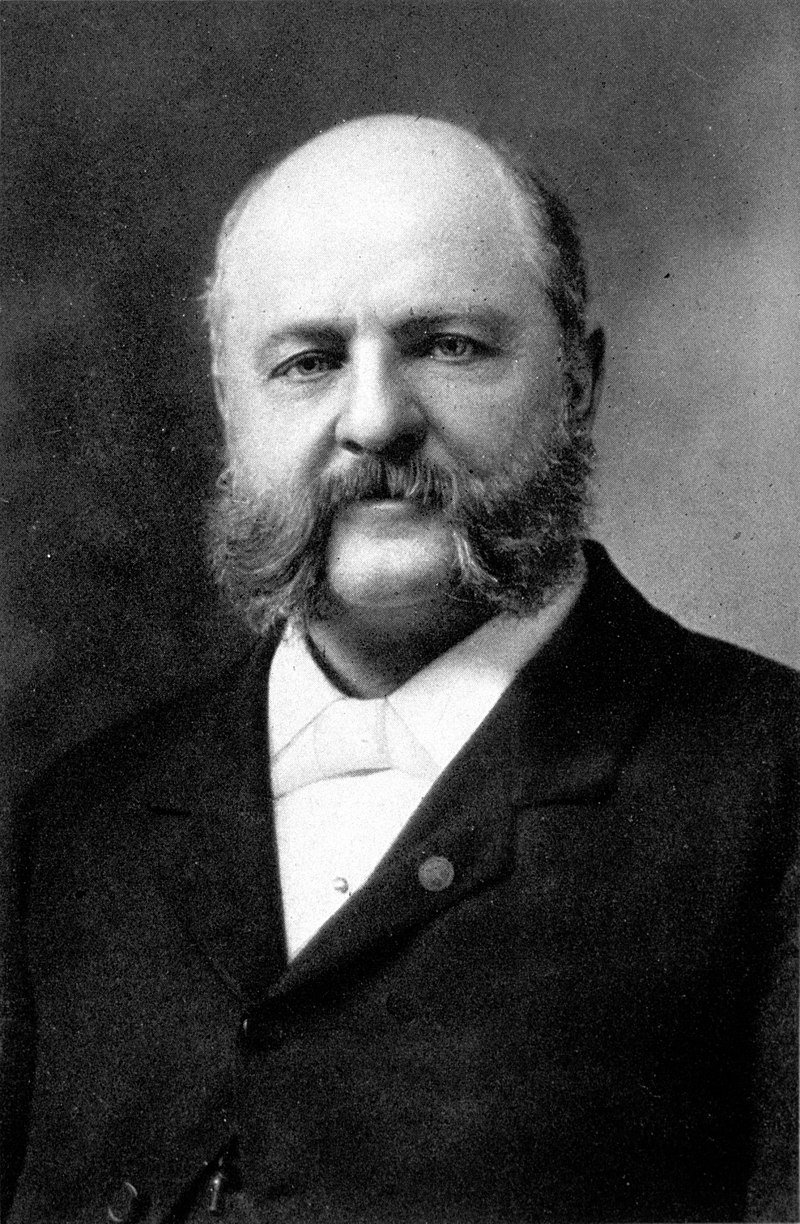 After the Supreme Court’s stay ruling yesterday, a Fifth Circuit panel will proceed wth oral argument on May 17 in New Orleans. (Information about the audio livestream may be found in that link.)
After the Supreme Court’s stay ruling yesterday, a Fifth Circuit panel will proceed wth oral argument on May 17 in New Orleans. (Information about the audio livestream may be found in that link.)
While the Supreme Court’s order said very little, the votes of seven Justices were consistent with the position of Judge Haynes when the stay issue was before the Fifth Circuit, and no Justice indicated agreement with the analysis of the per curiam panel majority. (I recently observed in Slate that the “Dobbs-era Supreme Court is well aware of the judicial strand of conservative thought, as well as the political.”).
 The motions panel ruled in Alliance for Hippocratic Medicine v. FDA, No. 23-10362 (April 12, 2023). In a nutshell, the panel majority concludes that (1) the plaintiffs have standing based on the percentage of mifepristone users who have side effects, (2) the plaintiffs’ challenge to FDA’s original approval of mifepristone for use in medication abortions is likely time-barred, and (3) FDA did not meet its burden, as the party seeking a stay, to show that plaintiff’s other challenges to FDA’s regulation of mifepristone were time-barred or otherwise fatally flawed. Judge Haynes would have granted an administrative stay and otherwise deferred to the merits panel (who is, in fact, not constrained by any of (1)-(3)). Further proceedings in the Supreme Court appear likely.
The motions panel ruled in Alliance for Hippocratic Medicine v. FDA, No. 23-10362 (April 12, 2023). In a nutshell, the panel majority concludes that (1) the plaintiffs have standing based on the percentage of mifepristone users who have side effects, (2) the plaintiffs’ challenge to FDA’s original approval of mifepristone for use in medication abortions is likely time-barred, and (3) FDA did not meet its burden, as the party seeking a stay, to show that plaintiff’s other challenges to FDA’s regulation of mifepristone were time-barred or otherwise fatally flawed. Judge Haynes would have granted an administrative stay and otherwise deferred to the merits panel (who is, in fact, not constrained by any of (1)-(3)). Further proceedings in the Supreme Court appear likely.
Valuable 600Camp merchandise can be yours if you identify the distinguished-looking gentleman to the right.
The abortion-medication opinion has been issued, staying the FDA’s approval of mifepristone, and staying itself for seven days to allow appeal.
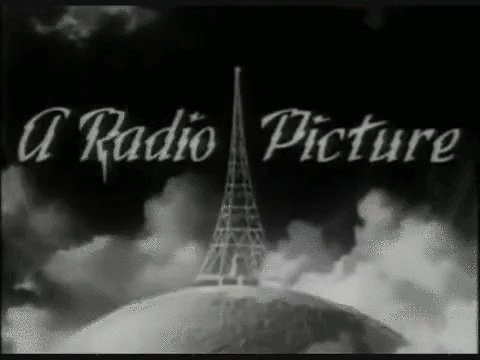 Without reference to the Federalist Papers or the records from the Constitutional Convention, the Fifth Circuit held in Consumers’ Research v. FCC that the six criteria in 47 U.S.C. § 254(b) gave the FCC “intelligible principles” to guide its regulation of communication, unlike the “total absence of guidance” identified last year in Jarkesy v. SEC, 34 F.4th 446 (5th Cir. 2022). No. 22-60008 (March 24, 2023).
Without reference to the Federalist Papers or the records from the Constitutional Convention, the Fifth Circuit held in Consumers’ Research v. FCC that the six criteria in 47 U.S.C. § 254(b) gave the FCC “intelligible principles” to guide its regulation of communication, unlike the “total absence of guidance” identified last year in Jarkesy v. SEC, 34 F.4th 446 (5th Cir. 2022). No. 22-60008 (March 24, 2023).
 The poem Antigonish begins:
The poem Antigonish begins:
Yesterday, upon the stair,
I met a man who wasn’t there
He wasn’t there again today
I wish, I wish he’d go away.
In that spirit, the majority and concurrence in Mexican Gulf Fishing Co v. U.S. Dep’t of Commerce, No. 22-30105 (Feb. 23, 2023), disagreed about the continuing viability of Chevron.
The case presented a dispute about the authority of the Commerce Department, under a Congressional mandate to conserve the nation’s offshore fisheries, to require charter boats to carry a GPS-location device and submit specified records about fishing activity.
3-0, the Fifth Circuit concluded that the government had exceeded its boundaries. The majority used a Chevron approach to the relevant statute; a concurrence joined but argued that recent Supreme Court cases have tacitly overruled Chevron, and the third judge joined specific parts of the majority opinion.
 Colorfully, the majority and concurrence disputed whether Chevron is fairly called the “Lord Voldemort of administrative law,” due to the Supreme Court’s unwillingness to refer to it recent administrative-law opinions. While that’s witty and good fun, the lack of clear guidance from the Supreme Court about this fundamental doctrine is clearly a problem–as this very opinion shows, since three judges approached the same issue in three different ways under the current state of the law. If the Supreme Court wants to overrule Chevron, it should overrule Chevron.
Colorfully, the majority and concurrence disputed whether Chevron is fairly called the “Lord Voldemort of administrative law,” due to the Supreme Court’s unwillingness to refer to it recent administrative-law opinions. While that’s witty and good fun, the lack of clear guidance from the Supreme Court about this fundamental doctrine is clearly a problem–as this very opinion shows, since three judges approached the same issue in three different ways under the current state of the law. If the Supreme Court wants to overrule Chevron, it should overrule Chevron.
 An exasperated Fifth Circuit granted mandamus relief to require FERC to explain significant delay in a nuclear-power rate dispute, In re Louisiana Public Service Comm’n, No. 22-60458 (Jan. 18, 2023).
An exasperated Fifth Circuit granted mandamus relief to require FERC to explain significant delay in a nuclear-power rate dispute, In re Louisiana Public Service Comm’n, No. 22-60458 (Jan. 18, 2023).
As to jurisdiction, the Court observed: “This court has jurisdiction over the LPSC’s petition to safeguard our prospective jurisdiction to review final FERC orders under the Federal Power Act. When federal appellate courts have jurisdiction to review agency action, ‘the All Writs Act empowers those courts to issue a writ of mandamus compelling the agency to complete the action.'” (footnotes omitted).
As to the merits, the Court observed: “FERC is correct that ratemaking is challenging work, and we are fully aware of the difficulties attending the substitution of nuclear for other power sources, with its attendant difficulties of allocating huge installation costs among electrical suppliers now looking to a new power source. Yet Congress has duly charged FERC with this important duty, and FERC has yet to provide this court with a meaningful explanation for its inability to expeditiously conclude Section 206 proceedings. FERC must convince this court that it has acted ‘within a reasonable time . . . to conclude [the] matter presented to it.’ In failing to do so, FERC risks judicial intervention to protect the rights of the parties before it and the interests of consumers.” (footnotes omitted).
 Cargill v. Garland, an en banc opinion released earlier this month, holds that the ATF’s “bump stock” rule was invalid. The diagram to the right, referenced by a link in the majority opinion, illustrates the firing mechanism for a semi-automatic firearm, which a bump stock facilitates by allowing rapid operation of the trigger.
Cargill v. Garland, an en banc opinion released earlier this month, holds that the ATF’s “bump stock” rule was invalid. The diagram to the right, referenced by a link in the majority opinion, illustrates the firing mechanism for a semi-automatic firearm, which a bump stock facilitates by allowing rapid operation of the trigger.
The majority opinions aligned as follows:
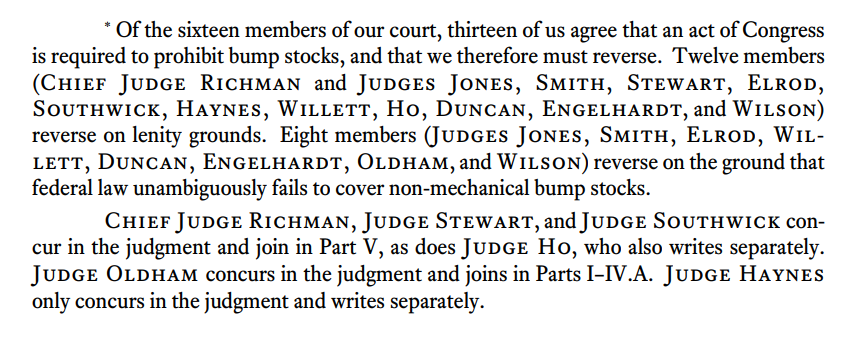 The three Democratic appointees on the court at the time (Higginson, Dennis, and Graves) dissented.
The three Democratic appointees on the court at the time (Higginson, Dennis, and Graves) dissented.
 In a time of well-documented skepticism in the federal courts about the administrative state, the FTC has doubled down, seeking public comment on a rule that would ban enforcement of noncompetition agreements.
In a time of well-documented skepticism in the federal courts about the administrative state, the FTC has doubled down, seeking public comment on a rule that would ban enforcement of noncompetition agreements.
As part of the explanation for its authority, the FTC cited authority that “Section 5 reaches conduct that, while not prohibited by the Sherman or Clayton Acts, violates the spirit or policies underlying those statutes.” That broad language will sound familiar to readers of the vaccine-mandate cases and their discussions of the EEOC’s rulemaking authority.
Given the present climate in the courts about expansive claims of agency authority, it seems likely that any FTC rule in this area will lead to extensive litigation before such a rule actually takes effect.
 The plaintiffs in National Horsemen’s Benevolent & Protective Ass’n v. Black sought to rein in the Horseracing Integrity and Safety Authority, a private entity created by Congress in 2020 – nominally under FTC oversight – to nationalize the regulation of thoroughbred horseracing. The Fifth Circuit scratched HISA, finding it facially unconstitutional as an excessive private delegation of federal-government power:
The plaintiffs in National Horsemen’s Benevolent & Protective Ass’n v. Black sought to rein in the Horseracing Integrity and Safety Authority, a private entity created by Congress in 2020 – nominally under FTC oversight – to nationalize the regulation of thoroughbred horseracing. The Fifth Circuit scratched HISA, finding it facially unconstitutional as an excessive private delegation of federal-government power:
A cardinal constitutional principle is that federal power can be wielded only by the federal government. Private entities may do so only if they are subordinate to an agency. But the Authority is not subordinate to the FTC. The reverse is true. … HISA restricts FTC review of the Authority’s proposed rules. If those rules are “consistent” with HISA’s broad principles, the FTC must approve them. And even if it finds inconsistency, the FTC can only suggest changes. … An agency does not have meaningful oversight if it does not write the rules, cannot change them, and cannot second-guess their substance.
No. 22-10387 (Nov. 18, 2022) (citations omitted, emphasis added).
Bloomberg Law provides a good summary of yesterday’s arguments in SEC v. Cochran, addressed by the en banc Fifth Circuit in 2021, as to the appropriate places to advance constitutional challenges to SEC enforcement actions.
The Fifth Circuit set a boundary – literally – for part of the administrative state in BP v. FERC, which reviewed a FERC fine of BP for alleged gas-price manipulation associated with Hurricane Ike. The Court held:
Contrary to FERC’s position, we hold that the Commission has jurisdiction only over transactions in interstate natural gas directly regulated by the Natural Gas Act (NGA). Specifically, we reject FERC’s broader theory that its authority to address market manipulation extends to any natural gas transaction which affects the price of a transaction under the NGA. Otherwise, however, we uphold the Commission’s order. Nevertheless, because FERC predicated its penalty assessment on its erroneous position that it had jurisdiction over all (and not just some) of BP’s transactions, we must remand for reassessment of the penalty in the light of our jurisdictional holding.
No. 21-60083-CV (Oct. 20, 2022, unpublished) (emphasis added).
CFSA v. CFPB finds – again – that the Consumer Financial Protection Bureau is unconstitutionally structured, but this time because its “double insulated” funding mechanisms violated the Appropriations Clause by circumventing Congress’ “power of the purse.” The arguments about that fundamental Constitutional provision are intriguing and seem likely to draw the Supreme Court’s interest. No. 21-50826 (Oct. 19, 2022). The Fifth Circuit’s treatment creates a split with seven other federal courts, including PHH Corp. v. CFPB, 881 F.3d 75 (D.C. Cir. 2018). A recent Slate article offered criticism of the opinion.
The opinion also presents a rare appearance of the word “magisterial” to describe an earlier case on this topic:  Cf. Herman Hesse, “Magister Ludi” (1943).
Cf. Herman Hesse, “Magister Ludi” (1943).
The Bankruptcy Code allows debtors to breach and cease performing executory contracts if the bankruptcy court approves. We thus have held that debtors may “reject” regulated energy contracts even if the Federal Energy
Regulatory Commission (“FERC”) would not like them to. A sister circuit agrees, and we confirmed our view mere months ago[.]Nevertheless, FERC persisted. Anticipating the petitioner’s insolvency, FERC issued four orders purporting to bind the petitioner to continue performing its gas transit contracts even if it rejected them during bankruptcy. The petitioner asks us to vacate those orders. Because FERC cannot countermand a debtor’s bankruptcy-law rights or the bankruptcy court’s powers, we grant the petitions for review and vacate the orders.
Gulfport Energy Corp. v. FERC, No. 21-60017 (July 19, 2022) (citations omitted).
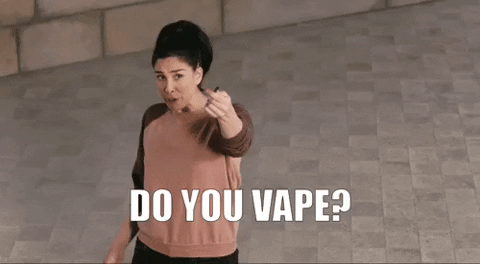 Despite a contrary view of the case by a motions panel, a majority of the the panel that received the merits briefing denied the petitions for review in Wages & White Lions Investments LLC v. FDA, a case about the regulation of “vaping” products: “Petitioners advance two primary arguments: (1) FDA acted arbitrarily and capriciously by pulling a ‘surprise switcheroo‘ on Petitioners and failing to consider important aspects of the PMTAs; and (2) FDA lacks statutory authority to impose a comparative efficacy requirement. We are unpersuaded by either argument.”
Despite a contrary view of the case by a motions panel, a majority of the the panel that received the merits briefing denied the petitions for review in Wages & White Lions Investments LLC v. FDA, a case about the regulation of “vaping” products: “Petitioners advance two primary arguments: (1) FDA acted arbitrarily and capriciously by pulling a ‘surprise switcheroo‘ on Petitioners and failing to consider important aspects of the PMTAs; and (2) FDA lacks statutory authority to impose a comparative efficacy requirement. We are unpersuaded by either argument.”
A dissent saw matters otherwise: “In a mockery of ‘reasoned’ administrative decision making, FDA (1) changed the rules for private entities in the middle of their marketing application process, (2) failed to notify the public of the changes in time for compliance, and then (3) rubber-stamped the denial of their marketing applications because of the hitherto unknown requirements.” A petition for en banc rehearing seems a near certainty. No. 21-60766 (July 18, 2022).
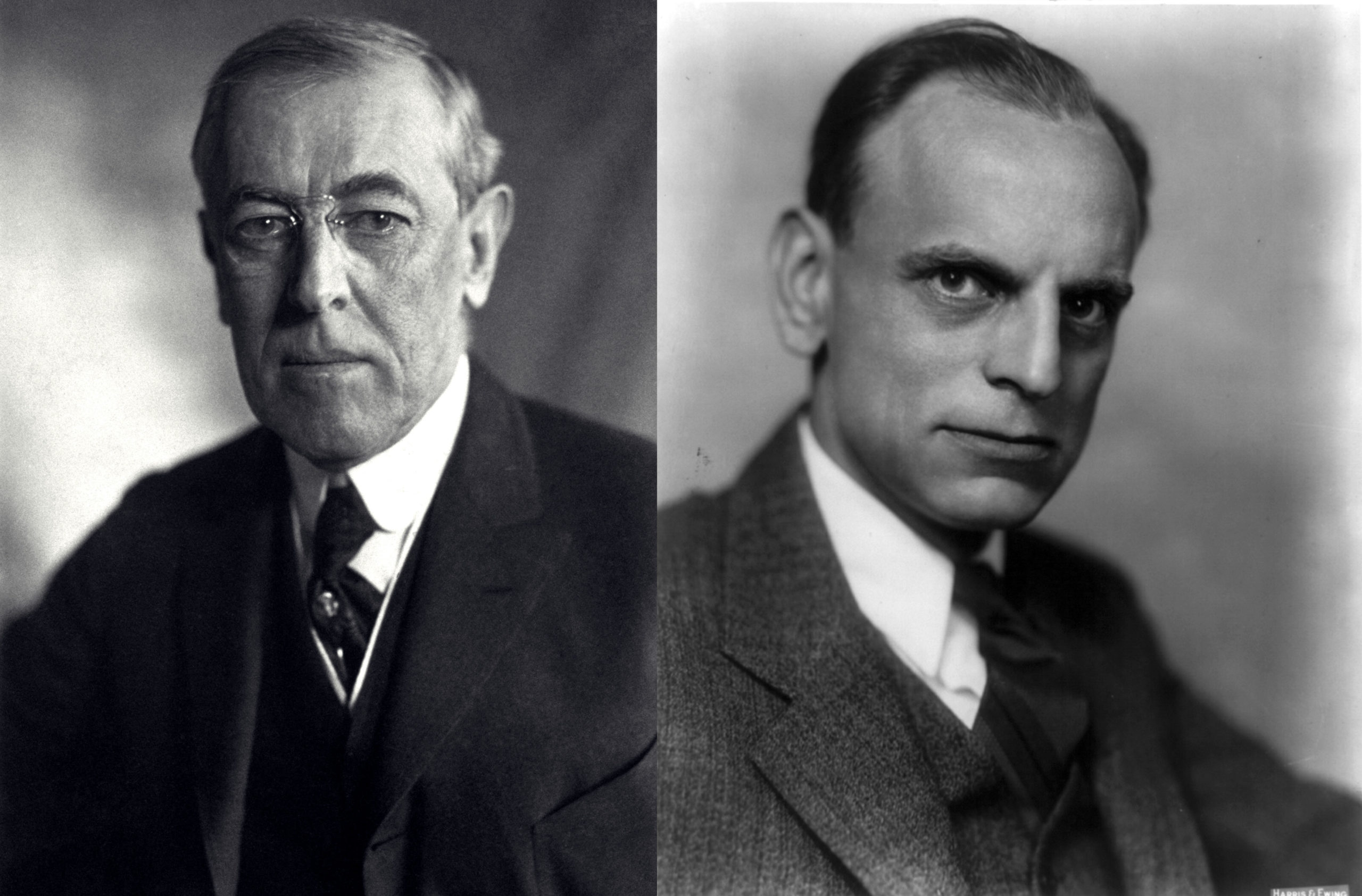 If Woodrow Wilson and James Landis seem alarmed in the picture to the right, it may be that they had a premonition about the Fifth Circuit’s 2021-22 skepticism toward the structure of the SEC. Following a 2021 loss in Cochran v. SEC on a procedural issue about constitutional challenges to the work of the SEC’s Administrative Law Judges (featuring a blistering critique of the administrative state in a concurrence by Judge Oldham, and as to which the Supreme Court has recently granted certiorari), the Court again reached constitutional issues in Jarksey v. SEC, holding:
If Woodrow Wilson and James Landis seem alarmed in the picture to the right, it may be that they had a premonition about the Fifth Circuit’s 2021-22 skepticism toward the structure of the SEC. Following a 2021 loss in Cochran v. SEC on a procedural issue about constitutional challenges to the work of the SEC’s Administrative Law Judges (featuring a blistering critique of the administrative state in a concurrence by Judge Oldham, and as to which the Supreme Court has recently granted certiorari), the Court again reached constitutional issues in Jarksey v. SEC, holding:
“(1) the SEC’s in-house adjudication of Petitioners’ case violated their Seventh Amendment right to a jury trial; (2) Congress unconstitutionally delegated legislative power to the SEC by failing to provide an intelligible principle by which the SEC would exercise the delegated power, in violation of Article I’s vesting of “all” legislative power in Congress; and (3) statutory removal restrictions on SEC ALJs violate the Take Care Clause of Article II [of the Constitution].”
Judge Elrod wrote the panel majority opinion, joined by Judge Oldham. Judge Davis dissented as to each holding. These holdings have obvious significance to other administrative agencies and could well again draw Supreme Court attention. No. 20-61007 (May 18, 2022).
A merits panel, with a notably different makeup than the motions panel, reversed a preliminary injunction about a federal-employee vaccination requirement in Feds for Medical Freedom v. Biden, No. 22-40043 (April 7, 2022).
FERC v. Ultra Resources presented a novel question about the interaction of the Bankruptcy Court and a filed-rate contract, and held “that under the particular circumstances presented here, Ultra Resources is not subject to a separate public-law obligation to continue performance of its rejected contract, and that 11 U.S.C. § 1129(a)(6) did not require the bankruptcy court to seek FERC’s approval before it confirmed Ultra Resource’s reorganization plan.” No. 21-20126 (March 14, 2022).
 The en banc case of Cochran v. SEC, No. 19-10396 (Dec. 13, 2021), presented a difficult statutory-interpretation case, overlaid on fundamental issues about the limits of the administrative state. The majority held that the 1934 Securities Exchange Act did not divest district courts of jurisdiction over “structural constitutional claims” about SEC enforcement actions: “Cochran’s removal power claim is wholly collateral to the Exchange Act’s statutory-review scheme, is outside the SEC’s expertise, and might never receive judicial review if district court jurisdiction were precluded.” An informative concurrence examined the continuing influence of Woodrow Wilson and James Landis (the SEC’s second director) on modern thinking about the power and pervasiveness of federal administrative agencies.
The en banc case of Cochran v. SEC, No. 19-10396 (Dec. 13, 2021), presented a difficult statutory-interpretation case, overlaid on fundamental issues about the limits of the administrative state. The majority held that the 1934 Securities Exchange Act did not divest district courts of jurisdiction over “structural constitutional claims” about SEC enforcement actions: “Cochran’s removal power claim is wholly collateral to the Exchange Act’s statutory-review scheme, is outside the SEC’s expertise, and might never receive judicial review if district court jurisdiction were precluded.” An informative concurrence examined the continuing influence of Woodrow Wilson and James Landis (the SEC’s second director) on modern thinking about the power and pervasiveness of federal administrative agencies.
If you think that the modern administrative state relies heavily upon acronyms, you are not alone, as the Fifth Circuit illustrated in Leigh Ann H v. Reisel ISD, No. 20-50003-CV (Nov. 22, 2021):
 In a rough stretch for the administrative state, after the Fifth Circuit’s recent skeptical rejection of an FDA regulation of e-cigarettes, another panel stayed OSHA’s vaccine-mandate regulation. It based its decision on several administrative-law principles and summarized:
In a rough stretch for the administrative state, after the Fifth Circuit’s recent skeptical rejection of an FDA regulation of e-cigarettes, another panel stayed OSHA’s vaccine-mandate regulation. It based its decision on several administrative-law principles and summarized:
“[T]he Mandate’s strained prescriptions combine to make it the rare government pronouncement that is both overinclusive (applying to employers and employees in virtually all industries and workplaces in America, with little attempt to account for the obvious differences between the risks facing, say, a security guard on a lonely night shift, and a meatpacker working shoulder to shoulder in a cramped warehouse) and underinclusive (purporting to save employees with 99 or more coworkers from a “grave danger” in the workplace, while making no attempt to shield employees with 98 or fewer coworkers from the very same threat). The Mandate’s stated impetus—a purported “emergency” that the entire globe has now endured for nearly two years, and which OSHA itself spent nearly two months responding to—is unavailing as well. And its promulgation grossly exceeds OSHA’s statutory authority.”
No. 21-60845 (Nov. 12, 2021) (footnotes omitted, emphasis in original).
 In Wages & White Lions Investments LLC v. FDA, the Fifth Circuit found many problems with the FDA’s denial of a company’s application to market flavored e-cigarettes. Among them, the Court identified two issues with the FDA’s review of the company’s marketing plan to avoid improper product use by young people; the Court’s reasoning is of broad general interest for Daubert practice as well as administrative law:
In Wages & White Lions Investments LLC v. FDA, the Fifth Circuit found many problems with the FDA’s denial of a company’s application to market flavored e-cigarettes. Among them, the Court identified two issues with the FDA’s review of the company’s marketing plan to avoid improper product use by young people; the Court’s reasoning is of broad general interest for Daubert practice as well as administrative law:
- The FDA’s contention “that no marketing plan would be sufficient, so it stopped working”: “That’s like an Article III judge saying that she stopped reading briefs because she previously found them unhelpful.”
- Reliance on expertise and experience. “An agency’s ‘experience and expertise’ presumably enable the agency to provide the required explanation, but they do not substitute for the explanation, any more than an expert witness’s credentials substitute for the substantive requirements applicable to the expert’s testimony under [Rule] 702.”
No. 21-60766 (Oct. 26, 2021).
A key issue facing OSHA’s new COVID regulation is whether a “grave danger” justified the agency acting so rapidly. In an unusual flash of appellate-court wit, the Fifth Circuit temporarily stayed the regulation, observing:
(Regrettably, Judge Graves was not on the panel.)
 A frequent international traveler alleged that he had been placed on a TSA list that required additional, invasive searches of him when he flew. The Fifth Circuit affirmed the dismissal of the several Constitutional claims that he raised in a lawsuit against the leaders of the relevant federal agencies:
A frequent international traveler alleged that he had been placed on a TSA list that required additional, invasive searches of him when he flew. The Fifth Circuit affirmed the dismissal of the several Constitutional claims that he raised in a lawsuit against the leaders of the relevant federal agencies:
“In short, Ghedi has no right to hassle-free travel. In the Supreme Court’s view, international travel is a ‘freedom’ subject to ‘reasonable governmental regulation.’ And when it comes to reasonable governmental regulation, our sister circuits have held that Government-caused inconveniences during international travel do not deprive a traveler’s right to travel. In the Sixth Circuit’s view, ‘incidental or negligible’ delays of ‘ten minutes’ to ‘an entire day’ do not ‘implicate the right to travel.’ The Second and Tenth Circuits have held the same. Ghedi has therefore failed to plausibly allege that he has been deprived of his right to travel internationally by the extra security measures he has experienced.”
Ghedi v. Mayorkas, No. 20-10995 (Oct. 25, 2021) (footnotes omitted).
 Johnson alleged that BOKF’s collection of “extended overdraft charges” (fees charged to customers who overdraw on their checking accounts and fail to timely pay the bank for covering the overdraft) were “interest” within the meaning of the National Bank Act. The Fifth Circuit rejected her claim, giving Auer deference to an interpretive letter of the Office of the Comptroller of the Currency, and noting as to the relevant considerations:
Johnson alleged that BOKF’s collection of “extended overdraft charges” (fees charged to customers who overdraw on their checking accounts and fail to timely pay the bank for covering the overdraft) were “interest” within the meaning of the National Bank Act. The Fifth Circuit rejected her claim, giving Auer deference to an interpretive letter of the Office of the Comptroller of the Currency, and noting as to the relevant considerations:
- Authoritative. The letter was drafted by the OCC’s chief counsel, in response to a bank’s request for OCC guidance, and thus “bears the hallmarks of an official interpretation by OCC.”
- Within the agency’s substantive expertise. OCC administers the National Bank Act, the letter “appears aimed at providing assurance to regulated parties,” and did not appear to merely take a “convenient litigating position.”
- Fair and considered judgment. The letter “is neither plainly erroneous nor inconsistent with the regulations it interprets.”
No. 18-11375 (Sept. 29, 2021).
 Huawei Technologies USA v. FCC presents an exhaustive summary of modern-day administrative law, in the context of reviewing an FCC rule that excluded Huawei from federal funds as a security risk. As the Court summarized its several holdings:
Huawei Technologies USA v. FCC presents an exhaustive summary of modern-day administrative law, in the context of reviewing an FCC rule that excluded Huawei from federal funds as a security risk. As the Court summarized its several holdings:
Their most troubling challenge is that the rule illegally arrogates to the FCC the power to make judgments about national security that lie outside the agency’s authority and expertise. That claim gives us pause. The FCC deals with national communications, not foreign relations. It is not the Department of Defense, or the National Security Agency, or the President. If we were convinced that the FCC is here acting as “a sort of junior varsity [State Department],” Mistretta v. United States, 488 U.S. 361, 427 (1989) (Scalia, J., dissenting), we would set the rule aside.
But no such skullduggery is afoot. Assessing security risks to telecom networks falls in the FCC’s wheelhouse. And the agency’s judgments about national security receive robust input from other expert agencies and officials. We are therefore persuaded that, in crafting the rule, the agency reasonably acted within the broad authority Congress gave it to regulate communications.
No. 19-60896 (June 18, 2021).
 The full Fifth Circuit declined to grant en banc review to State of Texas v. Rettig, 987 F.3d 518 (5th Cir. 2021), which involved constitutional challenges by certain states to two aspects of the Affordable Care Act. They contended that the “Certification Rule” violated the nondelegation doctrine, and that section 9010 of the ACA violated the Spending Clause and the Tenth Amendment’s doctrine of intergovernmental tax immunity. The panel found the laws constitutional, in an opinion by Judge Haynes that was joined by Judges Barksdale and Willett. “In the en banc poll, five judges voted in favor of rehearing (Judges Jones, Smith, Elrod, Ho, and Duncan), and eleven judges voted against rehearing (Chief Judge Owen, and Judges Stewart, Dennis, Southwick, Haynes, Graves, Higginson, Costa, Willett, Engelhardt, and Wilson),” with Judge Oldham not participating, and the five pro-rehearing judges joining a dissent.
The full Fifth Circuit declined to grant en banc review to State of Texas v. Rettig, 987 F.3d 518 (5th Cir. 2021), which involved constitutional challenges by certain states to two aspects of the Affordable Care Act. They contended that the “Certification Rule” violated the nondelegation doctrine, and that section 9010 of the ACA violated the Spending Clause and the Tenth Amendment’s doctrine of intergovernmental tax immunity. The panel found the laws constitutional, in an opinion by Judge Haynes that was joined by Judges Barksdale and Willett. “In the en banc poll, five judges voted in favor of rehearing (Judges Jones, Smith, Elrod, Ho, and Duncan), and eleven judges voted against rehearing (Chief Judge Owen, and Judges Stewart, Dennis, Southwick, Haynes, Graves, Higginson, Costa, Willett, Engelhardt, and Wilson),” with Judge Oldham not participating, and the five pro-rehearing judges joining a dissent.
 Several years ago, mathematicians rejoiced at the mapping of the world’s most complex structure, the 248-dimension “Lie Group E8” (right). Not to be outdone, the en banc Fifth Circuit has issued Brackeen v. Haaland, a 325-page set of opinions about the constitutionality of the Indian Child Welfare Act–a work so complicated that a six-page per curiam introduction is needed to explain the Court’s divisions on the issues. No. 18-11479 (April 6, 2021). The splits, opinions, and holdings will be reviewed in future posts.
Several years ago, mathematicians rejoiced at the mapping of the world’s most complex structure, the 248-dimension “Lie Group E8” (right). Not to be outdone, the en banc Fifth Circuit has issued Brackeen v. Haaland, a 325-page set of opinions about the constitutionality of the Indian Child Welfare Act–a work so complicated that a six-page per curiam introduction is needed to explain the Court’s divisions on the issues. No. 18-11479 (April 6, 2021). The splits, opinions, and holdings will be reviewed in future posts.
 Belcher complained about the FDIC’s power to take his deposition. The parties, and the panel majority, agreed that his lawsuit did not become moot even after the challenged deposition occurred: ‘Because the district court on remand can ‘fashion some form of meaningful relief,’ appeal is not moot. Exactly what that relief might entail is beyond the scope of our concern. However, it is undisputed by the parties that the district court could strike Belcher’s deposition testimony before the FDIC.” The majority also noted that the district court could address the FDIC’s sharing of the transcript. A dissent observed: “I see no reason to override what common sense suggests: the appeal of an order requiring a deposition is moot once the deposition is over.” FDIC v. Belcher, No. 19-31023 (Oct. 26, 2020).
Belcher complained about the FDIC’s power to take his deposition. The parties, and the panel majority, agreed that his lawsuit did not become moot even after the challenged deposition occurred: ‘Because the district court on remand can ‘fashion some form of meaningful relief,’ appeal is not moot. Exactly what that relief might entail is beyond the scope of our concern. However, it is undisputed by the parties that the district court could strike Belcher’s deposition testimony before the FDIC.” The majority also noted that the district court could address the FDIC’s sharing of the transcript. A dissent observed: “I see no reason to override what common sense suggests: the appeal of an order requiring a deposition is moot once the deposition is over.” FDIC v. Belcher, No. 19-31023 (Oct. 26, 2020).
 The most recent episode of the Coale Mind podcast discusses Mi Familia Vota v. Abbott, No. 20-50793 (Oct. 14, 2020), a challenge to several Texas voting laws in light of the COVID-19 pandemic. The case reminds of two important limits on federal judicial power in such disputes:
The most recent episode of the Coale Mind podcast discusses Mi Familia Vota v. Abbott, No. 20-50793 (Oct. 14, 2020), a challenge to several Texas voting laws in light of the COVID-19 pandemic. The case reminds of two important limits on federal judicial power in such disputes:
- Under Ex parte Young (Mr. Young appears to the right): “Although a court can enjoin state officials from enforcing statutes, such an injunction must be directed to those who have the authority to enforce those statutes. In the present case, that would be county or other local officials.”
- And naming the right defendant is only the first hurdle posed by federalism: “An examination of the relief that the Plaintiffs seek in the case before us reveals that in many instances, court-ordered-relief would require the Governor or the Secretary of State to issue an executive order or directive or to take other sweeping affirmative action. If implemented by the district court, many of the directives requested by the Plaintiffs would violate principles of federalism.”
 “[C]ourt changes of election laws close in time to the election are strongly disfavored. … [I]n staying a preliminary injunction that would change election laws eighteen days before early voting begins, we recognize the value of preserving the status quo in a voting case on the eve of an election, and we find that the traditional factors for granting a stay favor granting one here.” Texas Alliance for Retired Americans v. Hughs, No. 20-40643 (Sept. 30, 2020).
“[C]ourt changes of election laws close in time to the election are strongly disfavored. … [I]n staying a preliminary injunction that would change election laws eighteen days before early voting begins, we recognize the value of preserving the status quo in a voting case on the eve of an election, and we find that the traditional factors for granting a stay favor granting one here.” Texas Alliance for Retired Americans v. Hughs, No. 20-40643 (Sept. 30, 2020).
 A home health care provider, feeling trapped by Medicare’s slow and complex administrative review process, sought relief in court. The Fifth Circuit affirmed the denial of its application for an injunction, observing: “The Constitution entrusts the political branches, not the judiciary, with making difficult and value-laden policy decisions. There were an infinite number of schemes Congress could have reasonably selected. Congress settled on one that guarantees at least two levels of administrative review and judicial review. And in the case of a backlog, Congress provided the ability to bypass long waits on the way to judicial review. Sahara rejected that option. At bottom, Sahara believes a different scheme would be better. But we lack the power to change it.” Sahara Health Care v. Azar, No. 18-41120 (Sept. 18, 2020) (emphasis added).
A home health care provider, feeling trapped by Medicare’s slow and complex administrative review process, sought relief in court. The Fifth Circuit affirmed the denial of its application for an injunction, observing: “The Constitution entrusts the political branches, not the judiciary, with making difficult and value-laden policy decisions. There were an infinite number of schemes Congress could have reasonably selected. Congress settled on one that guarantees at least two levels of administrative review and judicial review. And in the case of a backlog, Congress provided the ability to bypass long waits on the way to judicial review. Sahara rejected that option. At bottom, Sahara believes a different scheme would be better. But we lack the power to change it.” Sahara Health Care v. Azar, No. 18-41120 (Sept. 18, 2020) (emphasis added).
The opinion also provides an original source for the saying, “[t]he best laid plans of mice and men oft go awry” —
 “Applying Skidmore, we ask whether EPA’s interpretation of Title V in the Hunter Order is persuasive. Specifically, we inquire into the persuasiveness of EPA’s current view that the Title V permitting process does not require substantive reevaluation of the underlying Title I preconstruction permits applicable to a pollution source. As we read it, the Hunter Order defends the agency’s interpretation based principally on Title V’s text, Title V’s structure and purpose, and the structure of the Act as a whole. Having examined these reasons and found them persuasive, we conclude that EPA’s current approach to Title V merits Skidmore deference.” Environmental Integrity Project v. EPA, No. 18-60384 (Aug. 13, 2020) (emphasis added).
“Applying Skidmore, we ask whether EPA’s interpretation of Title V in the Hunter Order is persuasive. Specifically, we inquire into the persuasiveness of EPA’s current view that the Title V permitting process does not require substantive reevaluation of the underlying Title I preconstruction permits applicable to a pollution source. As we read it, the Hunter Order defends the agency’s interpretation based principally on Title V’s text, Title V’s structure and purpose, and the structure of the Act as a whole. Having examined these reasons and found them persuasive, we conclude that EPA’s current approach to Title V merits Skidmore deference.” Environmental Integrity Project v. EPA, No. 18-60384 (Aug. 13, 2020) (emphasis added).
 OSHA regulations have an exemption for “diving performed solely as a necessary part of a scientific, research, or educational activity by employees whose sole purpose for diving is to perform scientific research tasks. Scientific diving does not include performing any tasks usually associated with commercial diving such as: Placing or removing heavy objects underwater; inspection of pipelines and similar objects; construction; demolition; cutting or welding; or the use of explosives.”
OSHA regulations have an exemption for “diving performed solely as a necessary part of a scientific, research, or educational activity by employees whose sole purpose for diving is to perform scientific research tasks. Scientific diving does not include performing any tasks usually associated with commercial diving such as: Placing or removing heavy objects underwater; inspection of pipelines and similar objects; construction; demolition; cutting or welding; or the use of explosives.”
OSHA concluded that the divers who clean the tanks at the Houston Aquarium were not “scientific divers” under this regulation; the Fifth Circuit saw otherwise: “The divers are engaged in a ‘studious … examination’ and ‘detailed study’ when they observe the animals for abnormalities, and when they work to keep the animals in the Aquarium alive, healthy, and breeding. That an organization collaborates among employees and engages in verbal communication does not mean that the examination and study of the animals in the tanks is not ‘studious’ or ‘detailed.’ Nothing about the feeding and cleaning dives renders the information that the trained scientists performing the dives gather during these dives outside of the definition of ‘research.’” Houston Aquarium, Inc. v. OSHRC, No. 19-60245 (July 15, 2020).
 A manufacturer of vaping liquid, invoking the structural limitations imposed on administrative agencies by the delegation doctrine, challenged the FDA’s power to regulate it. The Fifth Circuit observed: “The [Supreme] Court might well decide—perhaps soon—to reexamine or revive the nondelegation doctrine. But ‘[w]e are not supposed to . . . read tea leaves to predict where it might end up.'” (citation omitted). That observation was case-dispositive: “The [Supreme] Court has found only two delegations to be unconstitutional. Ever. And none in more than eighty years.” Under that precedent, Congress’s delegation of authority to the FDA in this area showed a “sufficiently intelligible principle,” constrained by Congress’s definition of “tobacco product,” and by Congress having “ma[de] many of the key regulatory decisions itself.” Big Time Vapes, Inc. v. Food & Drug Admin., No. 19-60921 (June 25, 2020).
A manufacturer of vaping liquid, invoking the structural limitations imposed on administrative agencies by the delegation doctrine, challenged the FDA’s power to regulate it. The Fifth Circuit observed: “The [Supreme] Court might well decide—perhaps soon—to reexamine or revive the nondelegation doctrine. But ‘[w]e are not supposed to . . . read tea leaves to predict where it might end up.'” (citation omitted). That observation was case-dispositive: “The [Supreme] Court has found only two delegations to be unconstitutional. Ever. And none in more than eighty years.” Under that precedent, Congress’s delegation of authority to the FDA in this area showed a “sufficiently intelligible principle,” constrained by Congress’s definition of “tobacco product,” and by Congress having “ma[de] many of the key regulatory decisions itself.” Big Time Vapes, Inc. v. Food & Drug Admin., No. 19-60921 (June 25, 2020).
 A Texas business alleged that the CARES Act impermissibly discriminated against it as a bankruptcy debtor. The Fifth Circuit, citing its rule of orderliness, noted that it “has concluded that all injunctive relief directed at the [Small Business Administration] is absolutely prohibited.” Accordingly, “the bankruptcy court exceeded its authority when it issued an injunction against the SBA administrator … .” Hidalgo County Emergency Service Foundation v. Carranza, No. 20-40368 (June 22, 2020).
A Texas business alleged that the CARES Act impermissibly discriminated against it as a bankruptcy debtor. The Fifth Circuit, citing its rule of orderliness, noted that it “has concluded that all injunctive relief directed at the [Small Business Administration] is absolutely prohibited.” Accordingly, “the bankruptcy court exceeded its authority when it issued an injunction against the SBA administrator … .” Hidalgo County Emergency Service Foundation v. Carranza, No. 20-40368 (June 22, 2020).
 Despite the complexity of a dispute about telecommunication regulations, the parties’ performance mattered: “Sprint and Verizon’s conduct, while certainly not dispositive, is nevertheless informative. Sprint and Verizon are among America’s largest IXCs and are sophisticated market participants. Yet, they waited more than eighteen years to object to the LECs’ access charges for intraMTA wireless-to-wireline calls, paying hundreds of millions of dollars in the process. Moreover, over that same timeframe, Sprint’s and Verizon’s LEC affiliates imposed access charges on IXCs, including on each other, for intraMTA wireless-to-wireline calls. We decline to award Sprint and Verizon, who sat on their hands for the better part of two decades, a nine-figure windfall based on an interpretation of § 251(g) that is divorced from both the 1996 Act’s text and industry practice.” No. 18-10768 (May 27, 2020). (LPCH was one of the counsel for the prevailing side of this case.)
Despite the complexity of a dispute about telecommunication regulations, the parties’ performance mattered: “Sprint and Verizon’s conduct, while certainly not dispositive, is nevertheless informative. Sprint and Verizon are among America’s largest IXCs and are sophisticated market participants. Yet, they waited more than eighteen years to object to the LECs’ access charges for intraMTA wireless-to-wireline calls, paying hundreds of millions of dollars in the process. Moreover, over that same timeframe, Sprint’s and Verizon’s LEC affiliates imposed access charges on IXCs, including on each other, for intraMTA wireless-to-wireline calls. We decline to award Sprint and Verizon, who sat on their hands for the better part of two decades, a nine-figure windfall based on an interpretation of § 251(g) that is divorced from both the 1996 Act’s text and industry practice.” No. 18-10768 (May 27, 2020). (LPCH was one of the counsel for the prevailing side of this case.)
 “For a generation, the State of Texas and a federally recognized Indian tribe, the Ysleta del Sur Pueblo, have litigated the Pueblo’s attempts to conduct various gaming activities on its reservation near El Paso. This latest case poses familiar questions that yield familiar answers: (1) which federal law governs the legality of the Pueblo’s gaming operations—the Restoration Act (which bars gaming that violates Texas law) or the more permissive Indian Gaming Regulatory Act (which “establish[es] . . . Federal standards for gaming on Indian lands”); and (2) whether the district court correctly enjoined the Pueblo’s gaming operations.” Unfortunately for the tribe, the Fifth Circuit found that a previous opinion conclusively settled these issues in favor of the State of Texas. The opinion also discusses the proper scope of injunctive relief for such a situation. Texas v. Ysleta del Sur Pueblo, No. 19-50400 (April 2, 2020).
“For a generation, the State of Texas and a federally recognized Indian tribe, the Ysleta del Sur Pueblo, have litigated the Pueblo’s attempts to conduct various gaming activities on its reservation near El Paso. This latest case poses familiar questions that yield familiar answers: (1) which federal law governs the legality of the Pueblo’s gaming operations—the Restoration Act (which bars gaming that violates Texas law) or the more permissive Indian Gaming Regulatory Act (which “establish[es] . . . Federal standards for gaming on Indian lands”); and (2) whether the district court correctly enjoined the Pueblo’s gaming operations.” Unfortunately for the tribe, the Fifth Circuit found that a previous opinion conclusively settled these issues in favor of the State of Texas. The opinion also discusses the proper scope of injunctive relief for such a situation. Texas v. Ysleta del Sur Pueblo, No. 19-50400 (April 2, 2020).
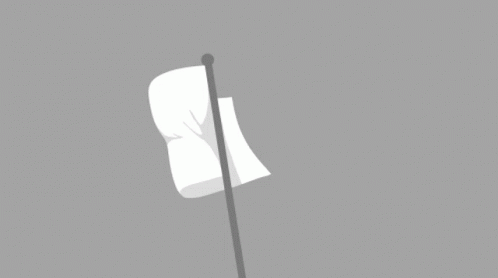 DISH Network declared an impasse after lengthy negotiations with the Communication Workers of America. The NLRB rejected that declaration; the Fifth Circuit reversed the NLRB’s factual determination: “The Board’s decision rested on its determination that the Union’s November 2014 counterproposal was a ‘white flag’ of surrender. But the ‘white flag’ characterization in turn rested on an unsound factual foundation from the ALJ” about how unionized employees reacted to a particular compensation system as compared to nonunionized ones. DISH Network Corp. v. NLRB (revised March 24, 2020).
DISH Network declared an impasse after lengthy negotiations with the Communication Workers of America. The NLRB rejected that declaration; the Fifth Circuit reversed the NLRB’s factual determination: “The Board’s decision rested on its determination that the Union’s November 2014 counterproposal was a ‘white flag’ of surrender. But the ‘white flag’ characterization in turn rested on an unsound factual foundation from the ALJ” about how unionized employees reacted to a particular compensation system as compared to nonunionized ones. DISH Network Corp. v. NLRB (revised March 24, 2020).
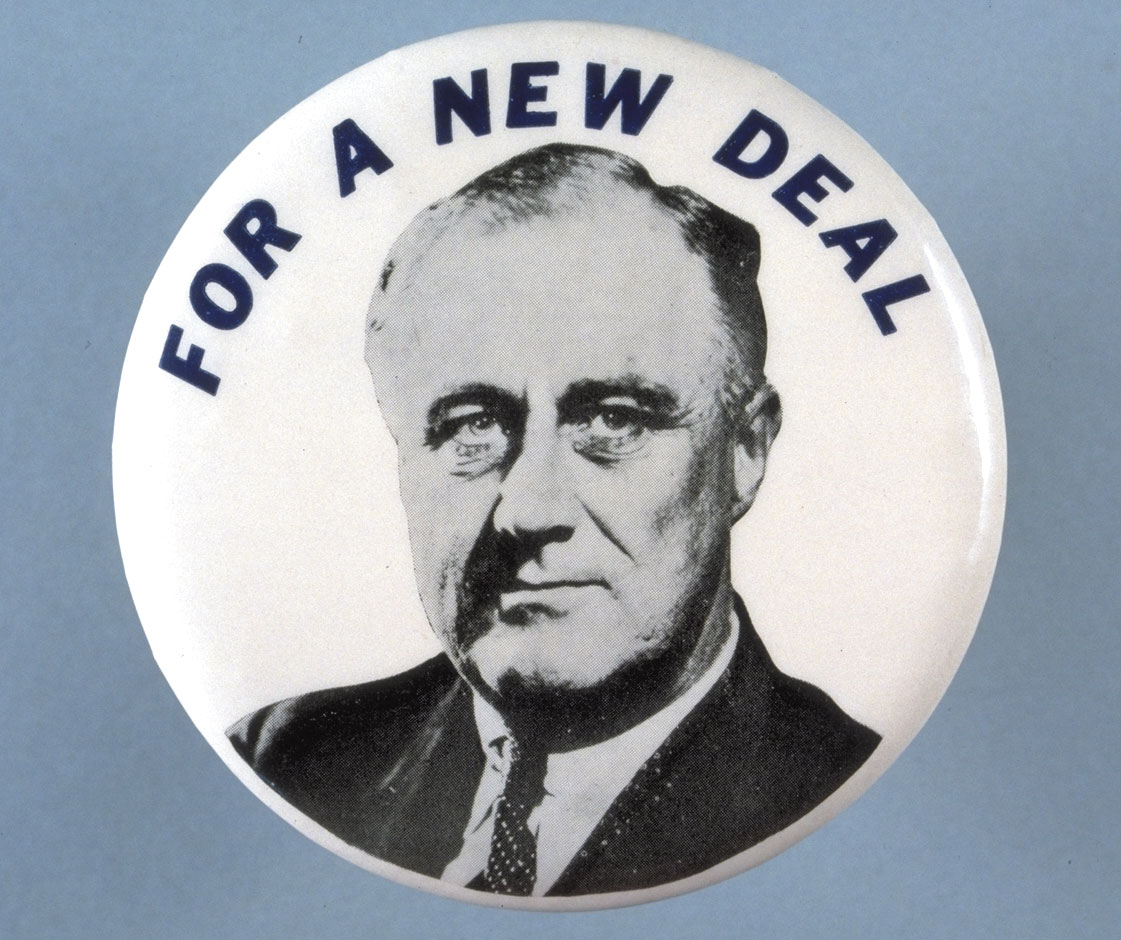 Surprising no one, the constitutional challenge to the CFPB’s structure presented by CFPB v. All American Check Cashing will be reviewed en banc by the full Fifth Circuit.
Surprising no one, the constitutional challenge to the CFPB’s structure presented by CFPB v. All American Check Cashing will be reviewed en banc by the full Fifth Circuit.
 The ground rules for the administrative state are few, important, and vexingly difficult to apply. The en banc court confronted the structure of Fannie Mae’s regulator, the Federal Housing Finance Agency, in Collins v. Mnuchin, 938 F.3d 553 (5th Cir. 2019), and found it wanting constitutionally. In CFPB v. All American Check Cashing, a panel majority confronted the structure of another Great Recession entity, the Consumer Finance Protection Board, and concluded that “neither the text of the Constitution nor the Supreme Court’s previous decisions support the Appellants’ arguments that the CFPB is unconstitutionally structured.” No. 18-60302 (March 3, 2020).
The ground rules for the administrative state are few, important, and vexingly difficult to apply. The en banc court confronted the structure of Fannie Mae’s regulator, the Federal Housing Finance Agency, in Collins v. Mnuchin, 938 F.3d 553 (5th Cir. 2019), and found it wanting constitutionally. In CFPB v. All American Check Cashing, a panel majority confronted the structure of another Great Recession entity, the Consumer Finance Protection Board, and concluded that “neither the text of the Constitution nor the Supreme Court’s previous decisions support the Appellants’ arguments that the CFPB is unconstitutionally structured.” No. 18-60302 (March 3, 2020).
 A concurrence elaborated: “The President can remove the CFPB Director only for ‘inefficiency, neglect of duty, or malfeasance in office,’ a broad standard repeatedly approved by the Supreme Court. That alone is enough to decide this case. If there is any threat of undue concentration of power, the Office of President is its beneficiary.” A dissent faulted the majority’s reasoning and the judicial process employed: “Collins winds up in the dustbin because two judges say it should. At one time, those judges thought it beyond the pale ‘to rely on strength in numbers rather than sound legal principles in order to reach their desired result in [a] specific case.’ Now, they suddenly discover that stare decisis is for suckers.” (footnotes omitted).
A concurrence elaborated: “The President can remove the CFPB Director only for ‘inefficiency, neglect of duty, or malfeasance in office,’ a broad standard repeatedly approved by the Supreme Court. That alone is enough to decide this case. If there is any threat of undue concentration of power, the Office of President is its beneficiary.” A dissent faulted the majority’s reasoning and the judicial process employed: “Collins winds up in the dustbin because two judges say it should. At one time, those judges thought it beyond the pale ‘to rely on strength in numbers rather than sound legal principles in order to reach their desired result in [a] specific case.’ Now, they suddenly discover that stare decisis is for suckers.” (footnotes omitted).
The General Land Office of Texas disputed the Interior Department’s decision to continue protection of the golden-cheeked warbler as an endangered species. The Fifth Circuit found the Department’s process flawed: “The Service recited this standard, but a careful examination of its analysis shows that the Service applied an inappropriately heightened one.Specifically, to proceed to the twelve-month review stage, the Service required the delisting petition to contain information that the Service had not considered in its five-year review that was sufficient to refute that review’s conclusions. . . .The Service thus based its decision to deny the delisting petition on an incorrect legal standard. Consequently, we conclude that the Service’s decision was arbitrary and capricious. We therefore vacate that decision and remand for the Service to evaluate the delisting petition under the correct legal standard.” General Land Office of Texas v. U.S. Dep’t of the Interior, No. 19-50178 (Jan. 15, 2020) (emphasis in original).
standard, but a careful examination of its analysis shows that the Service applied an inappropriately heightened one.Specifically, to proceed to the twelve-month review stage, the Service required the delisting petition to contain information that the Service had not considered in its five-year review that was sufficient to refute that review’s conclusions. . . .The Service thus based its decision to deny the delisting petition on an incorrect legal standard. Consequently, we conclude that the Service’s decision was arbitrary and capricious. We therefore vacate that decision and remand for the Service to evaluate the delisting petition under the correct legal standard.” General Land Office of Texas v. U.S. Dep’t of the Interior, No. 19-50178 (Jan. 15, 2020) (emphasis in original).
 A Chevron dispute about the Department of the Interior’s collection of natural gas royalties led to the question whether “the agency must credit all of W&T’s prior overdeliveries in calculating the cumulative delivery shortfall.” Observing that the defense of “equitable recoupment is ‘never barred by the statute of limitations so long as the main action itself is timely,'” the Fifth Circuit rejected the Department’s three arguments against its application – looking to three common reference points for resolving such disputes:
A Chevron dispute about the Department of the Interior’s collection of natural gas royalties led to the question whether “the agency must credit all of W&T’s prior overdeliveries in calculating the cumulative delivery shortfall.” Observing that the defense of “equitable recoupment is ‘never barred by the statute of limitations so long as the main action itself is timely,'” the Fifth Circuit rejected the Department’s three arguments against its application – looking to three common reference points for resolving such disputes:
- Statutory limitations. A statutory prohibition on “pursu[it of] any other equitable or legal remedy, whether under statute or common law” did not clearly preclude the assertion of this defense;
- Factual linkage. “This objection is easily dispatched, as the Department of the Interior’s requirement that payments be made on a monthly basis does not trump the reality that each monthly obligation arises from a single contract: the lease.
- Overall equities. The Department’s facially “neutral application of the statute of limitations across the industry does not counteract the inequitable result that W&T suffered . . . .”
W&T Offshore v. Bernhardt, No. 18-30876 (Dec. 23, 2019).
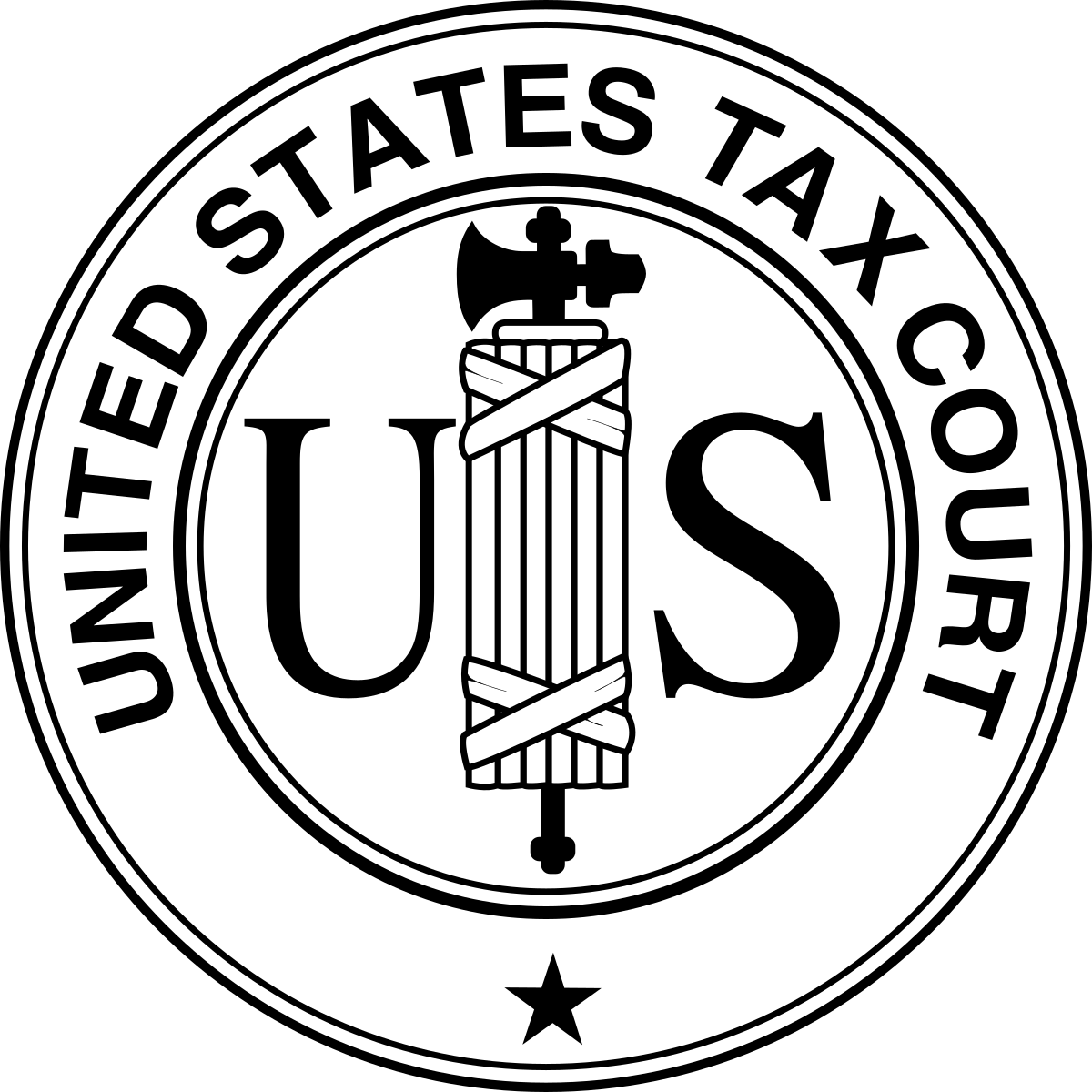 The Fifth Circuit affirmed a Tax Court decision about a $52 million “bad debt” deduction, observing: “Baker Hughes’ authorities all involved a bona fide debt. … No authority shown to us holds that a bad-debt deduction applies to a guarantor’s payment on a guarantee that does not create a debtor-creditor relationship with the party whose original obligation is extinguished.” Baker Hughes Inc. v. United States, No. 18-20585 (Nov. 21, 2019).
The Fifth Circuit affirmed a Tax Court decision about a $52 million “bad debt” deduction, observing: “Baker Hughes’ authorities all involved a bona fide debt. … No authority shown to us holds that a bad-debt deduction applies to a guarantor’s payment on a guarantee that does not create a debtor-creditor relationship with the party whose original obligation is extinguished.” Baker Hughes Inc. v. United States, No. 18-20585 (Nov. 21, 2019).
 The Fifth Circuit reversed an OSHA determination that a company had failed to justify an untimely response, noting that under Fed. R. Civ. P. 60(b)(1) (which OSHA has adopted for this particular situation): “The excusable neglect inquiry is not limited to whether a party’s mistake caused the delay, such cause being expressed in the term ‘neglect,’ but equally concerns whether the party’s mistake or omission was ‘excusable.’ Focusing narrowly on whether a party is at fault for the delay and denying relief if it bears any blame clearly conflicts with Pioneer‘s more lenient and comprehensive standard.” Coleman Hammons Constr. Co. v. OSHA, No. 18-60559 (Nov. 6, 2019).
The Fifth Circuit reversed an OSHA determination that a company had failed to justify an untimely response, noting that under Fed. R. Civ. P. 60(b)(1) (which OSHA has adopted for this particular situation): “The excusable neglect inquiry is not limited to whether a party’s mistake caused the delay, such cause being expressed in the term ‘neglect,’ but equally concerns whether the party’s mistake or omission was ‘excusable.’ Focusing narrowly on whether a party is at fault for the delay and denying relief if it bears any blame clearly conflicts with Pioneer‘s more lenient and comprehensive standard.” Coleman Hammons Constr. Co. v. OSHA, No. 18-60559 (Nov. 6, 2019).
 The EPA approved Louisiana’s plan for controlling haze; both environmental and industry groups protested. The Fifth Circuit affirmed the EPA’s approval under the “arbitrary and capricious” standard of review.
The EPA approved Louisiana’s plan for controlling haze; both environmental and industry groups protested. The Fifth Circuit affirmed the EPA’s approval under the “arbitrary and capricious” standard of review.
As to industry: “We afford ‘significant deference’ to agency decisions involving analysis of scientific data within the agency’s technical expertise. The EPA’s selection of a model to measure air pollution levels is precisely that type of decision. The EPA therefore did not act arbitrarily and capriciously in relying on the CALPUFF model to approve Louisiana’s [statutorily-required] determinations.”
As to environmental groups: “Louisiana’s explanation of its . . . determination . . . omitted two of the five mandatory factors and failed to compare—or even set out—the numbers for the costs and benefits of the control options Louisiana considered. Louisiana also failed to explain how its decision accounted for the EPA-submitted analyses that pointed out substantial flaws in other analyses in the administrative record. But applying the deferential standards of the Administrative Procedures Act to the facts of this case, we hold that the EPA’s approval of Louisiana’s [plan] was not arbitrary and capricious.” Sierra Club v. EPA, No. 18-60116 (Oct. 3, 2019).
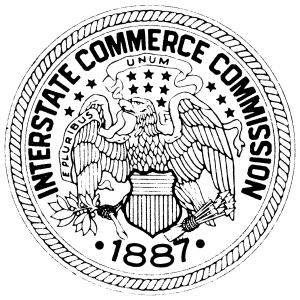 The full Fifth Circuit engaged the boundaries of the administrative state in Collins v. Mnuchin. A 9-7 majority of the en banc Court found that the FHFA (the regulator of Fannie Mae and Freddie Mac) was structured unconstitutionally; a different 9-7 majority found that the appropriate remedy was a go-forward restructure of the agency rather than the unwinding of a significant, previously-ordered financial transaction. (If the below is hard to read in your browser, just click on it to see it full-sized).
The full Fifth Circuit engaged the boundaries of the administrative state in Collins v. Mnuchin. A 9-7 majority of the en banc Court found that the FHFA (the regulator of Fannie Mae and Freddie Mac) was structured unconstitutionally; a different 9-7 majority found that the appropriate remedy was a go-forward restructure of the agency rather than the unwinding of a significant, previously-ordered financial transaction. (If the below is hard to read in your browser, just click on it to see it full-sized).
 Four Republican appointees joined the majority on remedy, two of whom–Judges Owen and Duncan–had joined the majority on constitutionality.
Four Republican appointees joined the majority on remedy, two of whom–Judges Owen and Duncan–had joined the majority on constitutionality.
Among the various concurrences and dissents, Judges Ho and Oldham concurred to emphasize the significance of the case to other administrative agencies, while Judges Costa and Higginson dissented on the basis of the plaintiffs’ standing.
The diverse approaches of the Republican-appointed judges underscore the frequent observation on this blog that the term “conservative” is a broad umbrella for different perspectives on distinct aspects of the apparatus of government.
 Conservative thinkers frequently express skepticism about the administrative state, and in particular, the Chevron doctrine about judicial deference to it. A powerful counterpoint to that line of thinking, and an equally orthodox part of conservative philosophy, appears in the Fifth Circuit’s recent opinion in Center for Biological Diversity v. EPA, which found a lack of standing to challenge an EPA discharge permit and reminded: “’For the federal courts to decide questions of law arising outside of cases and controversies would be inimical to the Constitution’s democratic character.’ It would improperly transform courts into ‘roving commissions assigned to pass judgment on the validity of the Nation’s laws’ and agency actions. In our Government, there are entities that address environmental issues outside of the case-or-controversy constraint. This Court is not one of them. As Judge Sentelle put it many years ago: ‘The federal judiciary is not a backseat Congress nor some sort of super-agency.’“ No. 18-60102 (Aug. 30, 2019) (citations omitted).
Conservative thinkers frequently express skepticism about the administrative state, and in particular, the Chevron doctrine about judicial deference to it. A powerful counterpoint to that line of thinking, and an equally orthodox part of conservative philosophy, appears in the Fifth Circuit’s recent opinion in Center for Biological Diversity v. EPA, which found a lack of standing to challenge an EPA discharge permit and reminded: “’For the federal courts to decide questions of law arising outside of cases and controversies would be inimical to the Constitution’s democratic character.’ It would improperly transform courts into ‘roving commissions assigned to pass judgment on the validity of the Nation’s laws’ and agency actions. In our Government, there are entities that address environmental issues outside of the case-or-controversy constraint. This Court is not one of them. As Judge Sentelle put it many years ago: ‘The federal judiciary is not a backseat Congress nor some sort of super-agency.’“ No. 18-60102 (Aug. 30, 2019) (citations omitted).
The complexity of the modern administrative state produces ornate procedural problems – specifically, in Wynnewood Refining Co. v. OSHRC, the challenge of two parties appealing an administrative-agency ruling to two different federal circuit courts. The solution, however, is simple, in the form of a strict “first-to-file” rule established by Congress for this problem: “Th[is] first-to-file rule governs even for petitions filed on the same day; indeed, we have applied it even when petitions were filed within a minute of each other.” The Fifth Circuit rebuffed an attempt by the agency to assert its discretion over which petition was filed first, concluding that Congress had drafted this statute to foreclose precisely such discretion. No. 19-60357 (Aug. 2, 2019).
 In Brackeen v. Bernhardt, an opinion of enormous significance to Indian law, the Fifth Circuit found the Indian Child Welfare Act to be constitutional, reversing a district-court opinion that held otherwise. The Court also affirmed various Bureau of Indian Affairs regulations under the Chevron doctrine, noting, inter alia: “The mere fact that an agency interpretation contradicts a prior agency position is not fatal. Sudden and
In Brackeen v. Bernhardt, an opinion of enormous significance to Indian law, the Fifth Circuit found the Indian Child Welfare Act to be constitutional, reversing a district-court opinion that held otherwise. The Court also affirmed various Bureau of Indian Affairs regulations under the Chevron doctrine, noting, inter alia: “The mere fact that an agency interpretation contradicts a prior agency position is not fatal. Sudden and  unexplained change, or change that does not take account of legitimate reliance on prior interpretation, may be arbitrary, capricious [or] an abuse of discretion. But if these pitfalls are avoided, change is not invalidating, since the whole point of Chevron is to leave the discretion provided by the ambiguities of a statute with the implementing agency.” No. 18-11479 (Aug. 9, 2019) (citation omitted). (My colleague Paulette Miniter and I assisted Professor Seth Davis of UC-Berkeley with an amicus brief in this case, in support of the result ultimately reached by the Court.)
unexplained change, or change that does not take account of legitimate reliance on prior interpretation, may be arbitrary, capricious [or] an abuse of discretion. But if these pitfalls are avoided, change is not invalidating, since the whole point of Chevron is to leave the discretion provided by the ambiguities of a statute with the implementing agency.” No. 18-11479 (Aug. 9, 2019) (citation omitted). (My colleague Paulette Miniter and I assisted Professor Seth Davis of UC-Berkeley with an amicus brief in this case, in support of the result ultimately reached by the Court.)
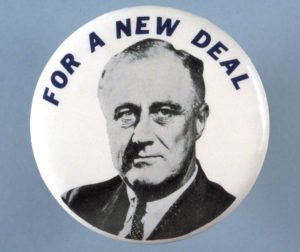 After a recent en banc vote, the full Fifth Circuit will engage an important limit on the power of the administrative state. The majority and dissenting opinons in Sierra Club v. Luminant Energy grappled with the “concurrent-remedies doctrine” and whether it created a limitations bar to an action for equitable relief under the Clean Air Act. No. No. 17-10235 (order issued June 10, 2019).
After a recent en banc vote, the full Fifth Circuit will engage an important limit on the power of the administrative state. The majority and dissenting opinons in Sierra Club v. Luminant Energy grappled with the “concurrent-remedies doctrine” and whether it created a limitations bar to an action for equitable relief under the Clean Air Act. No. No. 17-10235 (order issued June 10, 2019).
 In a detailed (and remarkably readable) review of EPA regulations of water pollution by steam-electric power plants, the Fifth Circuit vacated and remanded a rule for further agency consideration. In a nutshell: “[F]or five of the six wastewater streams regulated by the final rule . . ., EPA affirmatively rejected surface impoundments as [“Best Available Technology”] ‘because [they] would not result in reasonable further progress toward eliminating the discharge of all pollutants, particularly toxic pollutants.’ And yet, having rejected impoundments as BAT because they would not achieve ‘reasonable further progress’ toward eliminating pollution from those streams, EPA turned around and chose impoundments as BAT for each of those same streams generated before the compliance date. That paradoxical action signals arbitrary and capricious agency action.” (emphasis added, citations omitted). Southwestern Elec. Power Co. v. EPA, No. 15-60821 (April 12, 2019).
In a detailed (and remarkably readable) review of EPA regulations of water pollution by steam-electric power plants, the Fifth Circuit vacated and remanded a rule for further agency consideration. In a nutshell: “[F]or five of the six wastewater streams regulated by the final rule . . ., EPA affirmatively rejected surface impoundments as [“Best Available Technology”] ‘because [they] would not result in reasonable further progress toward eliminating the discharge of all pollutants, particularly toxic pollutants.’ And yet, having rejected impoundments as BAT because they would not achieve ‘reasonable further progress’ toward eliminating pollution from those streams, EPA turned around and chose impoundments as BAT for each of those same streams generated before the compliance date. That paradoxical action signals arbitrary and capricious agency action.” (emphasis added, citations omitted). Southwestern Elec. Power Co. v. EPA, No. 15-60821 (April 12, 2019).
 A 1994 Fifth Circuit opinion addressed whether the “Indian Tribes of Texas Restoration Act” or the “Indian Gaming Restoration Act” controlled Indian gaming in Texas (answer, the Restoration Act). In 2015, the National Indian Gaming Commission, citing intervening Supreme Court precedent, ruled otherwise. The Fifth Circuit declined to extend Chevron deference to that later ruling, noting:
A 1994 Fifth Circuit opinion addressed whether the “Indian Tribes of Texas Restoration Act” or the “Indian Gaming Restoration Act” controlled Indian gaming in Texas (answer, the Restoration Act). In 2015, the National Indian Gaming Commission, citing intervening Supreme Court precedent, ruled otherwise. The Fifth Circuit declined to extend Chevron deference to that later ruling, noting:
“[This case] requires us to apply Chevron step one to a prior judicial interpretation and to determine whether that court employed traditional tools of statutory interpretation and found that Congress spoke to the precise issue. That is what Ysleta I did in holding that “the Restoration Act prevails over IGRA when gaming activities proposed by [the Pueblo or Tribe] are at issue. Consequently, the NIGC’s decision that IGRA applies to the Tribe does not displace Ysleta I.”
State v. Alabama-Coushatta Tribe, No. 18-40116 (March 14, 2019).
 In Louisiana Real Estate Appraisers Board v. FTC, the Fifth Circuit declined to apply the “collateral order” doctrine to an interlocutory order of an administrative agency, leaving open the possibility that the doctrine could so be applied in a different situation. No. 18-60291 (Feb. 28, 2019).
In Louisiana Real Estate Appraisers Board v. FTC, the Fifth Circuit declined to apply the “collateral order” doctrine to an interlocutory order of an administrative agency, leaving open the possibility that the doctrine could so be applied in a different situation. No. 18-60291 (Feb. 28, 2019).
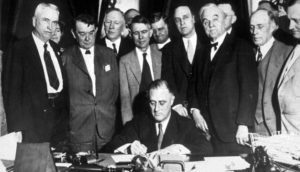 The fractured panel in Collins v. Mnuchin, which addressed the legality of “sweeps” of funds from Fannie Mae and Freddie Mac by their regulator, led to a fascinating en banc argument today in New Orleans as the Court reviewed fundamental administrative-law issues.
The fractured panel in Collins v. Mnuchin, which addressed the legality of “sweeps” of funds from Fannie Mae and Freddie Mac by their regulator, led to a fascinating en banc argument today in New Orleans as the Court reviewed fundamental administrative-law issues.
 The dusky gopher frog returns to the Fifth Circuit; the Supreme Court has reversed a decision about judicial review of the Fish & Wildlife Service’s treatment of the endangered frog’s habitat, reached after a close denial of en banc review. In the meantime, the Fifth Circuit’s makeup has materially changed in ways that likely predispose the full court toward a different view of the underlying administrative-law issues.
The dusky gopher frog returns to the Fifth Circuit; the Supreme Court has reversed a decision about judicial review of the Fish & Wildlife Service’s treatment of the endangered frog’s habitat, reached after a close denial of en banc review. In the meantime, the Fifth Circuit’s makeup has materially changed in ways that likely predispose the full court toward a different view of the underlying administrative-law issues.
 Even in the complex world of the modern administrative state, the Social Security Administration stands alone as “the Mount Everest of bureaucratic structures.” Barrett v. Berryhill, No. 17-41177 (revised Oct. 16, 2018) (citation omitted). Surveying that landscape, the Fifth Circuit concluded that a person claiming disability benefits did not have an automatic right to cross-examine a “medical consultant,” a doctor who reviews records without examining the claimant: “We do not mean to say that the opinions of medical consultants are unimportant or error free. But granting an automatic right to subpoena them is too strong a medicine. We do not see why examination of a medical consultant will always, or even usually, lead to meaningful impeachment. That is especially true when, as in this case, the [relevant] form is reviewed by a second medical consultant, lessening the risk of error. When a claimant has legitimate concerns that a[] . . . form is inaccurate or misleading, existing regulations provide the opportunity to question the drafter.” (emphasis in original).
Even in the complex world of the modern administrative state, the Social Security Administration stands alone as “the Mount Everest of bureaucratic structures.” Barrett v. Berryhill, No. 17-41177 (revised Oct. 16, 2018) (citation omitted). Surveying that landscape, the Fifth Circuit concluded that a person claiming disability benefits did not have an automatic right to cross-examine a “medical consultant,” a doctor who reviews records without examining the claimant: “We do not mean to say that the opinions of medical consultants are unimportant or error free. But granting an automatic right to subpoena them is too strong a medicine. We do not see why examination of a medical consultant will always, or even usually, lead to meaningful impeachment. That is especially true when, as in this case, the [relevant] form is reviewed by a second medical consultant, lessening the risk of error. When a claimant has legitimate concerns that a[] . . . form is inaccurate or misleading, existing regulations provide the opportunity to question the drafter.” (emphasis in original).
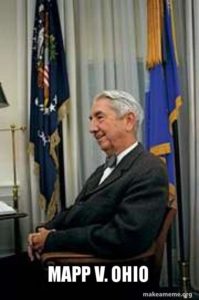 The modern administrative state often requests documents for compliance and enforcement purposes; such a request led to a Fourth Amendment challenge to a subpoena from the Texas Medical Board in Barry v. Freshour. The challenge was made by a doctor who practiced at the facility that received the request. The Fifth Circuit rejected the doctor’s challenge and reversed the district court’s ruling in his favor: “The district court concluded Barry had standing because the records were sought in a proceeding against him and the subpoena was addressed to him personally (though it was also addressed to the records custodian). But the Supreme Court has rejected a ‘target’ approach to Fourth Amendment standing that would look to whether the evidence obtained could be used against the person seeking to challenge the search.” Here, “Barry relies on a list of pure privacy interests in the information the records contain. All but one, as he concedes, are specifically tied to his patients’ privacy interests in their own medical records. To the extent such interests are constitutionally cognizable, they cannot be asserted by Barry.” No. 17-20726 (Oct. 4, 2018).
The modern administrative state often requests documents for compliance and enforcement purposes; such a request led to a Fourth Amendment challenge to a subpoena from the Texas Medical Board in Barry v. Freshour. The challenge was made by a doctor who practiced at the facility that received the request. The Fifth Circuit rejected the doctor’s challenge and reversed the district court’s ruling in his favor: “The district court concluded Barry had standing because the records were sought in a proceeding against him and the subpoena was addressed to him personally (though it was also addressed to the records custodian). But the Supreme Court has rejected a ‘target’ approach to Fourth Amendment standing that would look to whether the evidence obtained could be used against the person seeking to challenge the search.” Here, “Barry relies on a list of pure privacy interests in the information the records contain. All but one, as he concedes, are specifically tied to his patients’ privacy interests in their own medical records. To the extent such interests are constitutionally cognizable, they cannot be asserted by Barry.” No. 17-20726 (Oct. 4, 2018).
 The “concurrent-remedies doctrine” holds that “when the jurisdiction of the federal court is concurrent with that of law, or the suit is brought in aid of a legal right, equity will withhold its remedy if the legal right is barred by the local statute of limitations.” In Sierra Club v. Luminant Energy, that doctrine would have barred a private litigant’s claim for an injunction when a damages claim was time-barred – but it was held not to apply to a request for injunctive relief brought by the U.S. in its capacity as sovereign. On the
The “concurrent-remedies doctrine” holds that “when the jurisdiction of the federal court is concurrent with that of law, or the suit is brought in aid of a legal right, equity will withhold its remedy if the legal right is barred by the local statute of limitations.” In Sierra Club v. Luminant Energy, that doctrine would have barred a private litigant’s claim for an injunction when a damages claim was time-barred – but it was held not to apply to a request for injunctive relief brought by the U.S. in its capacity as sovereign. On the  merits of the request, the panel majority noted that “the statute of limitations that barred the legal relief [of damages] does not itself bar equitable relief unless it constitutes a penalty,” and left the question of whether the relief was in fact a penalty for the district court on remand. A dissent reasoned that “both of these so-called forms of injunctive relief are really just time-barred penalties in disguise,” would have affirmed dismissal of the entire case on limitations grounds, and avoided the issue about applying the concurrent-remedies doctrine to sovereigns. No. 17-10235 (Oct. 1, 2018).
merits of the request, the panel majority noted that “the statute of limitations that barred the legal relief [of damages] does not itself bar equitable relief unless it constitutes a penalty,” and left the question of whether the relief was in fact a penalty for the district court on remand. A dissent reasoned that “both of these so-called forms of injunctive relief are really just time-barred penalties in disguise,” would have affirmed dismissal of the entire case on limitations grounds, and avoided the issue about applying the concurrent-remedies doctrine to sovereigns. No. 17-10235 (Oct. 1, 2018).
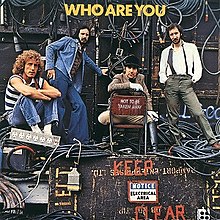 After a thorough review of the “fundamental relationship between a relator and the Government in qui tam actions,” the Fifth Circuit concluded that private relators dismissal of an action with prejudice did not bind the non-intervening U.S. government: “[R]elators sought to abandon their claims because they no longer wished to participate in the litigation. In other words, they acted on purely private interests. The Government—even one that chooses not to intervene—should not be bound by this decision, powerless to vindicate the public’s interests in other actions that may have a stronger basis or a relator more able to shoulder the burdens of litigation.” U.S. ex rel. Vaughn v. United Biologics LLC, No. 17-20389 (Sept. 7, 2018).
After a thorough review of the “fundamental relationship between a relator and the Government in qui tam actions,” the Fifth Circuit concluded that private relators dismissal of an action with prejudice did not bind the non-intervening U.S. government: “[R]elators sought to abandon their claims because they no longer wished to participate in the litigation. In other words, they acted on purely private interests. The Government—even one that chooses not to intervene—should not be bound by this decision, powerless to vindicate the public’s interests in other actions that may have a stronger basis or a relator more able to shoulder the burdens of litigation.” U.S. ex rel. Vaughn v. United Biologics LLC, No. 17-20389 (Sept. 7, 2018).
 The Consumer Financial Protection Bureau – the subject of ongoing litigation about the constitutionality of its structure, which has been at issue in the recent Kavanaugh hearings – lost a challenge to a civil investigative demand in CFPB v. The Source for Public Data: “The CFPB did not comply with 12 U.S.C. § 5562(c)(2) when it issued this CID to Public Data. First, it did not state the ‘conduct constituting the alleged violation which is under investigation.’ According to its Notification of Purpose, the CFPB is investigating ‘unlawful acts and practices in connection with the provision or use of public records information.’ Simply put, this Notification of Purpose does not identify what conduct, it believes, constitutes an alleged violation. . . . Moreover, this CID does not identify ‘the provision of law applicable to such violation.’ As discussed, the CID never identifies an alleged violation, so it is unsurprising that it fails to identify a relevant provision of law.” No. 17-10732 (Sept. 6, 2018).
The Consumer Financial Protection Bureau – the subject of ongoing litigation about the constitutionality of its structure, which has been at issue in the recent Kavanaugh hearings – lost a challenge to a civil investigative demand in CFPB v. The Source for Public Data: “The CFPB did not comply with 12 U.S.C. § 5562(c)(2) when it issued this CID to Public Data. First, it did not state the ‘conduct constituting the alleged violation which is under investigation.’ According to its Notification of Purpose, the CFPB is investigating ‘unlawful acts and practices in connection with the provision or use of public records information.’ Simply put, this Notification of Purpose does not identify what conduct, it believes, constitutes an alleged violation. . . . Moreover, this CID does not identify ‘the provision of law applicable to such violation.’ As discussed, the CID never identifies an alleged violation, so it is unsurprising that it fails to identify a relevant provision of law.” No. 17-10732 (Sept. 6, 2018).
 Federal crop insurance “protects an asset that does not yet exist,” since future crops are not yet grown. Congress refined the applicable statutes in 2014, allowing farmers to “elect to exclude” certain low-production
Federal crop insurance “protects an asset that does not yet exist,” since future crops are not yet grown. Congress refined the applicable statutes in 2014, allowing farmers to “elect to exclude” certain low-production  years from the historical calculations needed to write insurance for future crop production. The relevant amendment applied “for any of the 2001 and subsequent crop years,” and became effective immediately. A dispute arose between Texas winter wheat farmers, who announced their intention to exclude years under this statute, and the Federal Crop Insurance Corporation, who said it lacked time to prepare the necessary data. The Fifth Circuit rejected the FCIC’s argument that this statute’s “effective” date was distinct from its “implementation” date, finding that it failed step one of Chevron – “Such a problem arises not from an ambiguous
years from the historical calculations needed to write insurance for future crop production. The relevant amendment applied “for any of the 2001 and subsequent crop years,” and became effective immediately. A dispute arose between Texas winter wheat farmers, who announced their intention to exclude years under this statute, and the Federal Crop Insurance Corporation, who said it lacked time to prepare the necessary data. The Fifth Circuit rejected the FCIC’s argument that this statute’s “effective” date was distinct from its “implementation” date, finding that it failed step one of Chevron – “Such a problem arises not from an ambiguous  text but from Congress implementing razor sharp deadlines without, at least according to the FCIC, sufficient resources. That does not give the FCIC authority to disregard the plain text of the statute . . . .” Adkins v. Silverman, No. 17-10759 (Aug. 7, 2018).
text but from Congress implementing razor sharp deadlines without, at least according to the FCIC, sufficient resources. That does not give the FCIC authority to disregard the plain text of the statute . . . .” Adkins v. Silverman, No. 17-10759 (Aug. 7, 2018).
 A difficult question of administrative law produced a divided panel in Collins v. Mnuchin. The panel majority concluded that the Federal Housing Finance Agency (a regulator for Fannie Mae and Freddie Mac created by Congress in the wake of the 2008 financial crisis) was unconstitutionally structured. After careful review of the Supreme Court’s precedents in the area, the panel excised a “for cause” limitation on the removal of FHFA’s director from the relevant statute, finding that with this revision “the FHFA survives as a properly supervised executive agency.” One dissent took issue with that holding; another dissent criticized the majority’s conclusion that the specific FHFA action at issue – a “net worth sweep” requiring payment of substantial quarterly dividends to the Treasury by Fannie and Freddie – was within the scope of FHFA’s statutory authority and thus insulated from judicial review. No. 17-20364 (July 16, 2018).
A difficult question of administrative law produced a divided panel in Collins v. Mnuchin. The panel majority concluded that the Federal Housing Finance Agency (a regulator for Fannie Mae and Freddie Mac created by Congress in the wake of the 2008 financial crisis) was unconstitutionally structured. After careful review of the Supreme Court’s precedents in the area, the panel excised a “for cause” limitation on the removal of FHFA’s director from the relevant statute, finding that with this revision “the FHFA survives as a properly supervised executive agency.” One dissent took issue with that holding; another dissent criticized the majority’s conclusion that the specific FHFA action at issue – a “net worth sweep” requiring payment of substantial quarterly dividends to the Treasury by Fannie and Freddie – was within the scope of FHFA’s statutory authority and thus insulated from judicial review. No. 17-20364 (July 16, 2018).
 Many years, ago, “the Supreme Court viewed the fashioning of statutory remedies as within the property judicial rule [u]nder the now-abandoned maxim that ‘a statutory right implies the existence of all necessary and appropriate remedies.'” But that view has changed, and now, “the judicial task is to interpret the statute Congress has passed.” Alexander v. Sandoval, 532 U.S. 275 (2001). Proceeding from that starting point, after a review of the text and structure of the Air Carrier Access Act of 1986, the Court agreed that the Act did not create a private right of action, and it recognized that earlier Circuit authority on the issue had been essentially overruled by the analytical framework in Sandoval. Stokes v. Southwest Airlines, No. 17-10760 (April 5, 2018).
Many years, ago, “the Supreme Court viewed the fashioning of statutory remedies as within the property judicial rule [u]nder the now-abandoned maxim that ‘a statutory right implies the existence of all necessary and appropriate remedies.'” But that view has changed, and now, “the judicial task is to interpret the statute Congress has passed.” Alexander v. Sandoval, 532 U.S. 275 (2001). Proceeding from that starting point, after a review of the text and structure of the Air Carrier Access Act of 1986, the Court agreed that the Act did not create a private right of action, and it recognized that earlier Circuit authority on the issue had been essentially overruled by the analytical framework in Sandoval. Stokes v. Southwest Airlines, No. 17-10760 (April 5, 2018).
 By a 2-1 opinion, in Chamber of Commerce v. U.S. Dep’t of Labor, the Fifth Circuit struck down the “Fiduclary Rule,” a regulation that significantly expanded regulation of investment advisors. The majority’s analysis focused primarily on the traditional definition of a “fiduciary” (a discussion of broad general interest to all business litigators), and the canon of interpretation that “provisions of a text should be interpreted in a way that renders them compatible, not contradictory.” The dissent focused on how, “[o]ver the last forty years, the retirement-investment market has experienced a dramatic shift toward individually controlled retirement plans and accounts.” Notably, footnote 14 of the majority opinion observes that “the Chevron doctrine has been questioned on substantial grounds, including that it represents an abdication of the judiciary’s’ duty under Article III ‘to say what the law is,'” quoting recent opinions my Justice Thomas and then-Judge Gorsuch. No. 17-10238 (March 15, 2018).
By a 2-1 opinion, in Chamber of Commerce v. U.S. Dep’t of Labor, the Fifth Circuit struck down the “Fiduclary Rule,” a regulation that significantly expanded regulation of investment advisors. The majority’s analysis focused primarily on the traditional definition of a “fiduciary” (a discussion of broad general interest to all business litigators), and the canon of interpretation that “provisions of a text should be interpreted in a way that renders them compatible, not contradictory.” The dissent focused on how, “[o]ver the last forty years, the retirement-investment market has experienced a dramatic shift toward individually controlled retirement plans and accounts.” Notably, footnote 14 of the majority opinion observes that “the Chevron doctrine has been questioned on substantial grounds, including that it represents an abdication of the judiciary’s’ duty under Article III ‘to say what the law is,'” quoting recent opinions my Justice Thomas and then-Judge Gorsuch. No. 17-10238 (March 15, 2018).
 Welding-safety regulations enacted under the Outer Continental Shelf Lands Act contain this definition: “You means a lessee, the owner or holder of operating rights, a designated operator or agent of the lessee(s), a pipeline right-of-way holder, or a State lesssee granted a right-of-use and easement.” In United States v. Moss, the Fifth Circuit affirmed the dismissal of criminal charges against a contractor based on this set of regulations, agreeing that “you” – as defined above, and applied consistently with relevant canons of interpretation – could not be read to include a contractor. Weighing heavily against the government’s position was a long history of “virtually non-existent past enforcement of OCSLA regulations against contractors.” No. 16-30561 (Sept. 27, 2017).
Welding-safety regulations enacted under the Outer Continental Shelf Lands Act contain this definition: “You means a lessee, the owner or holder of operating rights, a designated operator or agent of the lessee(s), a pipeline right-of-way holder, or a State lesssee granted a right-of-use and easement.” In United States v. Moss, the Fifth Circuit affirmed the dismissal of criminal charges against a contractor based on this set of regulations, agreeing that “you” – as defined above, and applied consistently with relevant canons of interpretation – could not be read to include a contractor. Weighing heavily against the government’s position was a long history of “virtually non-existent past enforcement of OCSLA regulations against contractors.” No. 16-30561 (Sept. 27, 2017).
 2017 has not been kind to the administrative state, and neither was Burgess v. FDIC, No. 17-60579 (Sept. 7, 2017). An FDIC administrative law judge concluded that Burgess had misused bank property, the FDIC Board adopted those recommendations, and Burgess sought review in the Fifth Circuit. He sought an interim stay based upon his argument that the ALJ was an “inferior Officer” within the meaning of the Constitution’s Appointments Clause, and the Fifth Circuit agreed, citing the Supreme Court’s analysis of a similar position involving the U.S. Tax Court in Freytag v. Commissioner of Internal Revenue, 501 U.S. 868 (1991). In so doing, the Court parted ways with the D.C. Circuit’s analysis in Landry v. FDIC, 204 F.3d 1125 (2000), by concluding that final decision-making authority was not a prerequisite to Officer status. Accordingly, the Court granted the interim stay, finding that Burgess “has established a likelihood of success on the merits of his Appointments Clause challenge.”
2017 has not been kind to the administrative state, and neither was Burgess v. FDIC, No. 17-60579 (Sept. 7, 2017). An FDIC administrative law judge concluded that Burgess had misused bank property, the FDIC Board adopted those recommendations, and Burgess sought review in the Fifth Circuit. He sought an interim stay based upon his argument that the ALJ was an “inferior Officer” within the meaning of the Constitution’s Appointments Clause, and the Fifth Circuit agreed, citing the Supreme Court’s analysis of a similar position involving the U.S. Tax Court in Freytag v. Commissioner of Internal Revenue, 501 U.S. 868 (1991). In so doing, the Court parted ways with the D.C. Circuit’s analysis in Landry v. FDIC, 204 F.3d 1125 (2000), by concluding that final decision-making authority was not a prerequisite to Officer status. Accordingly, the Court granted the interim stay, finding that Burgess “has established a likelihood of success on the merits of his Appointments Clause challenge.”
 After a pipeline breach, a federal regulator penalized ExxonMobil for violating safety rules. The Fifth Circuit reversed, finding, inter alia, that the agency’s interpretation of the “textually unambiguous” regulation required no deference under Auer v. Robbins, 519 U.S. 452 (1997). Specifically, the regulation said that pipeline operators “must consider” “all risk factors that reflect the risk conditions on the pipeline
After a pipeline breach, a federal regulator penalized ExxonMobil for violating safety rules. The Fifth Circuit reversed, finding, inter alia, that the agency’s interpretation of the “textually unambiguous” regulation required no deference under Auer v. Robbins, 519 U.S. 452 (1997). Specifically, the regulation said that pipeline operators “must consider” “all risk factors that reflect the risk conditions on the pipeline  segment.” Concluding (presumably, after due consideration), that “consider” meant “to think about carefully,” the Court concluded that the regulation “unambiguously serves to informs a pipeline operator’s careful and deliberate decision-making process rather than to compel a particular outcome . . . ” This conclusion undermined the substantive basis of the agency’s liability determination, and led to reversal in substantial part. ExxonMobil Pipeline Co. v. U.S. Dep’t of Transp., No. 16-60448 (Aug. 14, 2017).
segment.” Concluding (presumably, after due consideration), that “consider” meant “to think about carefully,” the Court concluded that the regulation “unambiguously serves to informs a pipeline operator’s careful and deliberate decision-making process rather than to compel a particular outcome . . . ” This conclusion undermined the substantive basis of the agency’s liability determination, and led to reversal in substantial part. ExxonMobil Pipeline Co. v. U.S. Dep’t of Transp., No. 16-60448 (Aug. 14, 2017).
 In Hills v. Entergy Operations, Inc., a case about overtime pay for security guards, the Fifth Circuit reversed a summary judgment based upon a conclusion about two guards’ lack of damage. While the Court’s holding was based upon technical issues of employment law, its underlying reasoning is of broader applicability: “We reverse the district court’s summary judgment that the fluctuating workweek method applies here as a matter of law. The underlying factual issue upon which the applicabilty of that method is predicated, what the employees clearly understood, should be decided at trial in due course.” No. 16-30924 (Aug. 4, 2017). Also, in a ruling of general interest about administrative law, the Court declined to follow an interpretive letter by the Department of Labor.
In Hills v. Entergy Operations, Inc., a case about overtime pay for security guards, the Fifth Circuit reversed a summary judgment based upon a conclusion about two guards’ lack of damage. While the Court’s holding was based upon technical issues of employment law, its underlying reasoning is of broader applicability: “We reverse the district court’s summary judgment that the fluctuating workweek method applies here as a matter of law. The underlying factual issue upon which the applicabilty of that method is predicated, what the employees clearly understood, should be decided at trial in due course.” No. 16-30924 (Aug. 4, 2017). Also, in a ruling of general interest about administrative law, the Court declined to follow an interpretive letter by the Department of Labor.
 Sun-Tzu famously counseled, “[a]ll armies prefer high ground to low and sunny places to dark.” The defendant airline in Conservation Force v. Delta Air Lines artfully changed the ground for conflict in a case about its policies toward shipments involving big game hunts. The plaintiff complained that the airlines’ policy of not accepting the shipment of lion, leopard, elephant, rhino and buffalo hunting trophies violated the airlines’ legal duty to treat all shippers equally. The Fifth Circuit agreed with the district court’s conclusion “that, despite a duty to treat all shippers equally, a common carrier does not have to treat all cargo equally.” No. 16-11062 (March 20, 2017, unpublished).
Sun-Tzu famously counseled, “[a]ll armies prefer high ground to low and sunny places to dark.” The defendant airline in Conservation Force v. Delta Air Lines artfully changed the ground for conflict in a case about its policies toward shipments involving big game hunts. The plaintiff complained that the airlines’ policy of not accepting the shipment of lion, leopard, elephant, rhino and buffalo hunting trophies violated the airlines’ legal duty to treat all shippers equally. The Fifth Circuit agreed with the district court’s conclusion “that, despite a duty to treat all shippers equally, a common carrier does not have to treat all cargo equally.” No. 16-11062 (March 20, 2017, unpublished).
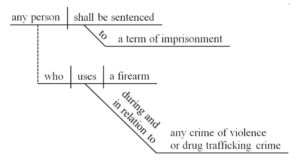 Press coverage of Judge Neil Gorsuch’s nomination to the Supreme Court has noted his intelligent and accessible writing style, including use of a sentence diagram (left) in a criminal case that turned on what elements of the crime
Press coverage of Judge Neil Gorsuch’s nomination to the Supreme Court has noted his intelligent and accessible writing style, including use of a sentence diagram (left) in a criminal case that turned on what elements of the crime  required proof of intent. In the same spirit, in dissent from the denial of en banc rehearing in a highly technical case about protection of the dusky gopher frog (right), Judge Edith Jones used a pair of Venn diagrams to illustrate her view of how the Endangered Species Act should operate (below left), contrasted with the panel opinion’s (below right). Markle Interests v. U.S. Fish & Wildlife Service, No. 14-31008 (Feb. 14, 2017).
required proof of intent. In the same spirit, in dissent from the denial of en banc rehearing in a highly technical case about protection of the dusky gopher frog (right), Judge Edith Jones used a pair of Venn diagrams to illustrate her view of how the Endangered Species Act should operate (below left), contrasted with the panel opinion’s (below right). Markle Interests v. U.S. Fish & Wildlife Service, No. 14-31008 (Feb. 14, 2017).
 A detailed review of tax statutes and other authorities resulted in affirmance of a judgment against Bombardier related to the taxation of its “Flexjet” program; the Court summarized: “Because the law and its application to the real world is continually evolving, it is only natural that guidance in Revenue Rulings evolves too. We find a consistent theme, though, in the IRS’s guidance from the earliest Revenue Rulings grappling with this issue: where an entity is responsible for nearly every service and precondition necessary to transport persons in an aircraft, and it charges for those services, it is providing taxable transportation – even if the bona fide owner of the aircraft itself is the person traveling.” Bombardier Aerospace Corp. v. United States, No. 15-10468 (July 25, 2016).
A detailed review of tax statutes and other authorities resulted in affirmance of a judgment against Bombardier related to the taxation of its “Flexjet” program; the Court summarized: “Because the law and its application to the real world is continually evolving, it is only natural that guidance in Revenue Rulings evolves too. We find a consistent theme, though, in the IRS’s guidance from the earliest Revenue Rulings grappling with this issue: where an entity is responsible for nearly every service and precondition necessary to transport persons in an aircraft, and it charges for those services, it is providing taxable transportation – even if the bona fide owner of the aircraft itself is the person traveling.” Bombardier Aerospace Corp. v. United States, No. 15-10468 (July 25, 2016).
 In an uncommon example of a successful application for an appellate stay, the Fifth Circuit stayed the EPA’s rulings about Texas’s haze reduction plans. The Court found a likelihood of success on the merits, based on, inter alia, the degree of deference required by EPA, the lack of on-point authority supporting its position, and statutory limits on its power. As to irreparable injury, the Court noted the substantial compliance costs faced by power companies (to the point of risking
In an uncommon example of a successful application for an appellate stay, the Fifth Circuit stayed the EPA’s rulings about Texas’s haze reduction plans. The Court found a likelihood of success on the merits, based on, inter alia, the degree of deference required by EPA, the lack of on-point authority supporting its position, and statutory limits on its power. As to irreparable injury, the Court noted the substantial compliance costs faced by power companies (to the point of risking  “unemployment and the permanent closure plants”), and the lack of any mechanism for them to recover those costs if the EPA’s rule was invalidated. The Court also noted “the threat of grid instability and potential brownouts,” as well as the potential injury from a violation of the federalism principles in the Clean Air Act. Finally, the court “agree[s] with Petitioners that the public’s interest in ready access to affordable electricity outweighs the inconsequential visibility differences that the federal implementation plan would achieve in the near future.” Texas v. EPA, No. 16-60118 (July 15, 2016).
“unemployment and the permanent closure plants”), and the lack of any mechanism for them to recover those costs if the EPA’s rule was invalidated. The Court also noted “the threat of grid instability and potential brownouts,” as well as the potential injury from a violation of the federalism principles in the Clean Air Act. Finally, the court “agree[s] with Petitioners that the public’s interest in ready access to affordable electricity outweighs the inconsequential visibility differences that the federal implementation plan would achieve in the near future.” Texas v. EPA, No. 16-60118 (July 15, 2016).
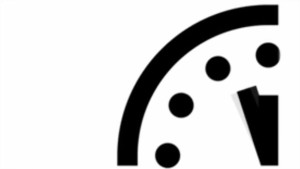 In a significant and technical dispute about Clean Air Act liability related to emissions at Exxon’s complex in Baytown Texas, the Fifth Circuit touched on a matter of broader interest about restitution/calculation of “benefit.” In its analysis of a proper civil penalty, the Court noted that “the effect of spending money to achieve compliance is often not mitigation of economic benefit — rather, plaintiffs may point to such expenditures as evidence of the regulated entity’s economic benefit to the extent the delay in making those expenditures allowed the regulated entity to use the money it saved productively.” Environment Texas Citizens Lobby v. ExxonMobil Corp., No. 15-20030 (May 27, 2016).
In a significant and technical dispute about Clean Air Act liability related to emissions at Exxon’s complex in Baytown Texas, the Fifth Circuit touched on a matter of broader interest about restitution/calculation of “benefit.” In its analysis of a proper civil penalty, the Court noted that “the effect of spending money to achieve compliance is often not mitigation of economic benefit — rather, plaintiffs may point to such expenditures as evidence of the regulated entity’s economic benefit to the extent the delay in making those expenditures allowed the regulated entity to use the money it saved productively.” Environment Texas Citizens Lobby v. ExxonMobil Corp., No. 15-20030 (May 27, 2016).
 The Houston Professional Towing Association, a persistent if unsuccessful litigant, brought its third challenge to the City of Houston’s “SafeClear” freeway towing program. It argued that recent changes to those ordinances had changed the facts enough to remove a res judicata bar from a previous lawsuit. The Fifth Circuit disagreed, concluding that the purpose of the law remained the same (“to promote safety by expeditiously clearing stalled and wrecked vehicles”), and statistics about collisions after the program began were either indeterminate or showed that it enhanced safety. Houston Professional Towing Association v. City of Houston, No. 15-20117 (Feb. 3, 2016).
The Houston Professional Towing Association, a persistent if unsuccessful litigant, brought its third challenge to the City of Houston’s “SafeClear” freeway towing program. It argued that recent changes to those ordinances had changed the facts enough to remove a res judicata bar from a previous lawsuit. The Fifth Circuit disagreed, concluding that the purpose of the law remained the same (“to promote safety by expeditiously clearing stalled and wrecked vehicles”), and statistics about collisions after the program began were either indeterminate or showed that it enhanced safety. Houston Professional Towing Association v. City of Houston, No. 15-20117 (Feb. 3, 2016).
 Dr. Barrash, a member of a professional association of neurosurgeons, testified against Dr. Oishi, who was also a group member. Dr. Oishi settled his case and filed a complaint with the association about Dr. Barrash, alleging (among other claims) that Dr. Barrash failed to review all relevant records. The association censured Dr. Barrash, who then sued the association, claiming a denial of due process and a breach of the association’s contract with its members.
Dr. Barrash, a member of a professional association of neurosurgeons, testified against Dr. Oishi, who was also a group member. Dr. Oishi settled his case and filed a complaint with the association about Dr. Barrash, alleging (among other claims) that Dr. Barrash failed to review all relevant records. The association censured Dr. Barrash, who then sued the association, claiming a denial of due process and a breach of the association’s contract with its members.
The district court found a denial of due process as to part of the censure, which the association did not appeal. The Fifth Circuit affirmed the Rule 12 dismissal of the rest of Dr. Barrash’s claims: “Dr. Barrash received sufficient due process, including notice, a hearing, and multiple levels of appeal, before he was censured for failing to review all pertinent and available records prior to testifying. Because the district court found only one basis of the censure to be unsupported by due process, the district court was correct in setting aside only that portion of the censure. Furthermore, no Texas court has recognized a breach of contract challenge to a private association’s disciplinary process.” Barrash v. American Association of Neurological Surgeons, No. 14-20764 (Feb. 3, 2016).
 The district court abstained under the “primary jurisdiction” doctrine in deference to a FERC proceeding. On the threshold question of appellate jurisdiction, the Court concluded that Hines v. D’Artois, 531 F.2d 726 (5th Cir. 1976) was still good law, and allowed it to consider an otherwise-interlocutory appeal: “[T]he district court’s order resulted in Occidental being ‘effectively out of court’ and therefore functioned as a final decision.” On the merits, the Court remanded with instructions to not stay the court case indefinitely, but to instead stay for 180 days and assess the status then. Occidental Chem. Corp. v. Louisiana Public Service Comm’n, No. 15-30100 (Jan. 4, 2016).
The district court abstained under the “primary jurisdiction” doctrine in deference to a FERC proceeding. On the threshold question of appellate jurisdiction, the Court concluded that Hines v. D’Artois, 531 F.2d 726 (5th Cir. 1976) was still good law, and allowed it to consider an otherwise-interlocutory appeal: “[T]he district court’s order resulted in Occidental being ‘effectively out of court’ and therefore functioned as a final decision.” On the merits, the Court remanded with instructions to not stay the court case indefinitely, but to instead stay for 180 days and assess the status then. Occidental Chem. Corp. v. Louisiana Public Service Comm’n, No. 15-30100 (Jan. 4, 2016).
Susan Rothkamm sued for wrongful levy, after the IRS seized a CD in her name to satisfy a tax liability of her husband. The Fifth Circuit reversed the dismissal of her claim, finding that she had standing as a “taxpayer” under the broad definition of 7701 of the Internal Revenue Code: “The term ‘taxpayer’ means any person subject to any internal revenue tax.” The Court also found that limitations was tolled during the pendency of her application for a Taxpayer Assistance Order, and that the IRS did not have discretion to affect the length of that tolling period. Rothkamm v. United States, No. 14-31164 (Sept. 21, 2015). A dissent warned: “I dissent from the majority’s newly minted tolling rule. While this creativity is driven by a desire to achieve fairness, it suffers the vice common to such endeavors – it does the opposite by disrupting a carefully structured regime for the resolution of disputes between the IRS and property owners.”
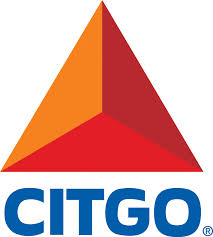 The issue in United States v. CITGO was whether an “equalization tank” — a holding tank that plays a role in the process for handling oil refinery wastewater — is an “oil-water separator” within the meaning of the regulations implementing the Clean Water Act. The jury instructions quoted the regulation’s definition of an oil-water separator and then added: “[t]he definition of oil-water separator does not require that [it] have any or all of the ancillary equipment mentioned such as forebays, weirs, grit chambers, and sludge hoppers . . . . An oil-water separator is defined by how it is used.” The Fifth Circuit found an abuse of discretion in that additional sentence and reversed CITGO’s convictions: “This purely functional explanation is not what [the regulation] says, however: it defines an oil-water separator by how it is used and by its constituent parts. . . . Although the jury was also provided the exact text of Subpart QQQ, the court’s instruction told them what it means and thus undoubtedly affected the verdict. For this harmful error, the Clean Air Act convictions must be reversed.” No. 14-40128 (Sept. 4, 2015).
The issue in United States v. CITGO was whether an “equalization tank” — a holding tank that plays a role in the process for handling oil refinery wastewater — is an “oil-water separator” within the meaning of the regulations implementing the Clean Water Act. The jury instructions quoted the regulation’s definition of an oil-water separator and then added: “[t]he definition of oil-water separator does not require that [it] have any or all of the ancillary equipment mentioned such as forebays, weirs, grit chambers, and sludge hoppers . . . . An oil-water separator is defined by how it is used.” The Fifth Circuit found an abuse of discretion in that additional sentence and reversed CITGO’s convictions: “This purely functional explanation is not what [the regulation] says, however: it defines an oil-water separator by how it is used and by its constituent parts. . . . Although the jury was also provided the exact text of Subpart QQQ, the court’s instruction told them what it means and thus undoubtedly affected the verdict. For this harmful error, the Clean Air Act convictions must be reversed.” No. 14-40128 (Sept. 4, 2015).
 The Department of Agriculture fined Bodie Knapp (d/b/a “The Wild Side”) $395,000 for violations of regulations about the purchase and sale of exotic animals. The Fifth Circuit largely affirmed, reviewing several basic concepts of administrative law in the process:
The Department of Agriculture fined Bodie Knapp (d/b/a “The Wild Side”) $395,000 for violations of regulations about the purchase and sale of exotic animals. The Fifth Circuit largely affirmed, reviewing several basic concepts of administrative law in the process:
- A clear regulation about a regulatory exemption trumps an arguably inconsistent summary of the regulation in an agency publication.
- Even in an environment of considerable deference, an agency ALJ must provide enough explanation so the appellate court can “reasonably discern the reason” for his ruling. Accordingly, the Court remanded for further findings as to whether “aoudad, alpaca, and miniature donkeys are ‘animals’ . . . and not ‘farm animals,'” and about the purchasers’ intentions to display “one alpaca, one auodad, two zebras, one wildebeest, two addax, seven buffalo, three nilgai, four chinchilla and one axis deer.” (No partridge in a pear tree was involved in the case.)
- It is a “heavy burden” to prove estoppel from statements made by an agency employee, and proof of a misrepresentation is only one element of that defense.
- A sale of two lemurs (as opposed to a donation) can be proven with evidence of the receipt of two zebras shortly after the delivery of the lemurs.
The opinion also affirmed on several challenges to the penalties, finding the agency’s position to not be unreasonable. Knapp v. U.S. Dep’t of Agriculture, No. 14-60002 (July 31, 2015).
 Hamsher was admitted to “Timberline Knolls Residential Treatment Center” for mental health care; her employer did not pre-authorize her treatment. Unfortunately for the employer, its right under its healthcare plan to insist on precertification applied only to care in a “hospital,” and the Fifth Circuit concluded: “the administrative file contains only claim forms, none of which provide an indication as to whether Timberline is a ‘hospital’ as defined under the Plan. The name is suggestive, of course, but title alone does not constitute the type of ‘substantial evidence’ that [the employer] must put forward.” Accordingly, the Court rendered judgment for the employee, in a rare appellate reversal of an ERISA dispute.
Hamsher was admitted to “Timberline Knolls Residential Treatment Center” for mental health care; her employer did not pre-authorize her treatment. Unfortunately for the employer, its right under its healthcare plan to insist on precertification applied only to care in a “hospital,” and the Fifth Circuit concluded: “the administrative file contains only claim forms, none of which provide an indication as to whether Timberline is a ‘hospital’ as defined under the Plan. The name is suggestive, of course, but title alone does not constitute the type of ‘substantial evidence’ that [the employer] must put forward.” Accordingly, the Court rendered judgment for the employee, in a rare appellate reversal of an ERISA dispute.
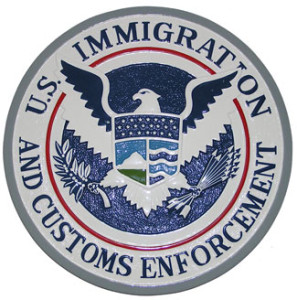 In a 2-1 decision, the Fifth Circuit has denied the federal government’s request to stay the district court’s injunction against key elements of President Obama’s immigration policy. Texas v. United States, No. 15-40238 (May 26, 2015). Judge Higginson’s dissent concludes that the issues before the Court are nonjusticiable. Judge Smith’s majority (joined by Judge Elrod), made these key points:
In a 2-1 decision, the Fifth Circuit has denied the federal government’s request to stay the district court’s injunction against key elements of President Obama’s immigration policy. Texas v. United States, No. 15-40238 (May 26, 2015). Judge Higginson’s dissent concludes that the issues before the Court are nonjusticiable. Judge Smith’s majority (joined by Judge Elrod), made these key points:
- On standing — “Texas’s forced choice between incurring costs and changing its fee structure is itself an injury: A plaintiff suffers an injury even if it can avoid that injury by incurring other costs. And being pressured to change state law constitutes an injury,”‘
- On the statutory merits — “[E]ven granting ‘special deference,’ the INA provisions cited by the government for that proposition cannot reasonably be construed, at least at this early stage of the case, to confer unreviewable discretion,” and
- On the APA issue — “But a rule can be binding if it is ‘applied by the agency in a way that indicates it is binding,’ and the states offered evidence from DACA’s implementation that DAPA’s discretionary language was pretextual.”
 The Fifth Circuit revised its original opinion in BNSF Railway Co. v. United States to expand and revise the discussion of ambiguity as part of the Chevron analysis of an IRS regulation; the outcome remained unchanged. No. 13-10014 (Jan. 15, 2015). The new discussion includes a reminder about the limited role of dictionaries, from the venerable en banc opinion about regulations for chicken processing in Mississippi Poultry Association, Inc. v. Madigan, 31 F.3d 293 (5th Cir.1994). The canon of “noscitur a sociis” (“an ambiguous term may be given more precise context by the neighboring words with which it is associated” also makes one of its infrequent appearances.
The Fifth Circuit revised its original opinion in BNSF Railway Co. v. United States to expand and revise the discussion of ambiguity as part of the Chevron analysis of an IRS regulation; the outcome remained unchanged. No. 13-10014 (Jan. 15, 2015). The new discussion includes a reminder about the limited role of dictionaries, from the venerable en banc opinion about regulations for chicken processing in Mississippi Poultry Association, Inc. v. Madigan, 31 F.3d 293 (5th Cir.1994). The canon of “noscitur a sociis” (“an ambiguous term may be given more precise context by the neighboring words with which it is associated” also makes one of its infrequent appearances.
The issue in Vine Street LLC v. Borg Warner Corp. was whether the defendant — a seller of dry cleaning equipment and supplies — intentionally discharged “PERC” (an unpleasant chemical widely used in dry cleaning) into the ground. No. 07-40440 (Jan. 14, 2015). While most of the opinion addresses technical matters about CERCLA , the discussion about the evidence of intent is of general interest. In particular, the Court noted testimony that the defendant’s employees handled PERC with care and did not intentionally spill it, and evidence that the defendant’s intent was to “sell useful chemicals to distributors and not to dispose of them” — in other words, “there is no evidence to suggest that [Defendant] engaged in subterfuge to disguise the disposal of PERC as a legitimate transaction surrounding the operation of a dry cleaning business.”
But all these years that I’ve been here, ain’t nobody got past Red – except Article III.
October 29, 2014“Those who prefer to hunt deer without the use of dogs (still-deer hunters) complain that
dog-deer hunting is disruptive and unsportsmanlike. Adjacent landowners complain that dog-deer hunting leads to shooting near houses and from roads, fights between dog-deer hunters and landowners, roads being blocked by dog-deer hunters, dogs running across private property, and trespass. Dog-deer hunters defend the practice based on its history as a traditional method of hunting in Louisiana dating back to the colonial period.” The plaintiffs in Louisiana Sportsmen Alliance, LLC v. Vilsack sought to enjoin the U.S. Forest Service from banning dog-deer hunting in the Kisatchie National Forest. The Forest Service won on the merits in the district court, and for the first time on appeal, argued that the plaintiff organization lacked standing. Expressing vexation: “The district court was ill-served by the Forest Service in this regard, because the Forest Service never argued that the Alliance lacked organizational standing until this appeal,” the Court nevertheless considered the issue because “Article III standing is a jurisdictional requirement that cannot be waived,” and then dismissed the appeal because the plaintiff association had not shown its standing to bring suit. No.13-31260 (Oct. 28, 2014, unpublished).
The Chemical Safety and Hazard Investigation Board served administrative subpoenas on Transocean in connection with the Deepwater Horizon disaster. United States v. Transocean Deepwater Drilling, Inc., No. 13-20243 (Sept. 18, 2014). Transocean contended that the Board lacked jurisdiction because the ill-fated rig was not a “stationary source” within the meaning of the Board’s enabling statute; the majority disagreed, concluding that at the time of the accident, the rig “was physically connected (though not anchored) at that site and maintained a fixed position.”
Transocean also contended that this sentence deprived the Board of jurisidiction: “The Board shall not be authorized to investigate marine oil spills, which the National Transportation Safety Board is authorized to investigate.” After a foray into the grammatical thicket of “which” v. “that,” the majority concluded that the Board was not categorically barred from investigating oil spills in light of the “overall regulatory scheme.”
A dissent disagreed with both conclusions, reminded that “[f]or the sake of maintaining limited government under the rule of law, courts must be vigilant to sanction improper administrative overreach,” and noted that at least 17 other investigations were conducted into the accident.
 The Public Utilities Regulatory Policies Act (“PURPA”) directs the FERC to encourage alternative energy providers, called “Qualifying Facilities” under that statute. In a novel arrangement that encourages flexibility but also can raise “troublesome” Tenth Amendment concerns, PURPA directs state agencies — such as the Texas PUC — to adopt rules that comply with FERC’s regulations and help implement PURPA. Exelon Wind 1, LLC v. Nelson, No. 12-51228 (Sept. 8, 2014) (quoting Power Resource Group v. Public Utility Comm’n of Texas, 422 F.3d 231 (5th Cir. 2005), and FERC v. Mississippi, 456 U.S. 742 (1982)).
The Public Utilities Regulatory Policies Act (“PURPA”) directs the FERC to encourage alternative energy providers, called “Qualifying Facilities” under that statute. In a novel arrangement that encourages flexibility but also can raise “troublesome” Tenth Amendment concerns, PURPA directs state agencies — such as the Texas PUC — to adopt rules that comply with FERC’s regulations and help implement PURPA. Exelon Wind 1, LLC v. Nelson, No. 12-51228 (Sept. 8, 2014) (quoting Power Resource Group v. Public Utility Comm’n of Texas, 422 F.3d 231 (5th Cir. 2005), and FERC v. Mississippi, 456 U.S. 742 (1982)).
The Texas PUC, acknowledging this mandate as well as the vagaries of wind power generation in the Texas Panhandle, enacted a rule limiting the pricing benefits of PURPA to “Qualifying Facilities able to forecast when they will deliver energy to the utility.” Exelon, a wind power producer, challenged the validity of this rule under PURPA.
The Fifth Circuit first rejected a jurisdictional challenge, finding that Exelon’s attack on the rule was an “as-applied” challenge — over which federal courts have jurisdiction – as opposed to a “facial” challenge reserved to state courts. In so reasoning, the Court declined to give Chevron deference to a “Declaratory Order” by FERC. On the merits, — again declining to give the FERC letter deference — the Court upheld the PUC regulation: “The PUC had the discretion to determine the specific parameters for ehwn a wind farm can form a Legally Enforceable Obligation, and . . . left open the possibility that other wind farms might be able to provide firm power . . . .”
A dissent, agreeing with the jurisdictional analysis, differed on the merits, finding that the PUC rule conflicts on its face with the applicable FERC regulation, and that deference was due to the “FERC’s reasonable interpretation of that regulation according to well-established principles of adminstrative deference.”
The unfortunate taxpayer in Whitehouse Hotel Limited Partnership v. Commissioner of Internal Revenue lost a multi-million dollar dispute about the value of an easement, related to the spectacular Ritz-Carlton on Canal Street in New Orleans, and as a result faced a substantial penalty. No. 13-60131 (June 11, 2014). The Fifth Circuit affirmed the Tax Court on the merits but reversed as to the penalty, noting: “We are particularly persuaded by [Taxpayer’s] argument that the Commissioner, the Commissioner’s expert, and the tax court all reached different conclusions” on the core valuation issue. Acknowledging that this area is fact-specific, the Court held as to the taxpayer’s conduct: “Obtaining a qualified appraisal, analyzing that appraisal, commissioning another appraisal, and submitting a professionally-prepared tax return is sufficient to show a good faith investigation as required by law.”
Aransas Project v. Shaw presented a challenge to an injunction against the Texas Commission on Environmental Quality, prohibiting the TCEQ from issuing new permits to withdraw water from rivers that feed the estuary where whooping cranes live. No. 13-40317 (June 30, 2014). The whooping crane, described in the opinion as a “majestic bird that stands five feet tall,” is an endangered species, and the only known wild flock lives in Texas during winter.
The Fifth Circuit first rejected an argument for Burford abstention, finding that this case presented a “broader grant of administrative and judicial authority by state law to remedy environmental grievances” than a prior opinion where it allowed abstention in a similar sort of environmental dispute. Cf. Sierra Club v. City of San Antonio, 112 F.3d 789 (5th Cir. 1997).
The Court then reversed the injunction, finding no causation “in the face of multiple, natural, independent, unpredictable and interrelated forces affecting the cranes’ estuary environment.” While couched in language about proximate causation and environmental law, the Court’s analysis is a classic illustration of the recurring Daubert problem of excluding alternate causes. (In the course of this discussion, the butterfly effect theory makes a cameo appearance in footnote 10.)
A company received “PRP” (Potentially Responsible Party) letters from the EPA, followed by a “Unilateral Administrative Order” requiring the company to do remedial work. Its CGL insurer denied coverage, contending that these administrative communications under CERCLA were not a “suit” that triggered the duty to defend. McGinnes Industrial Maintenance Corp. v. Phoenix Ins. Co., No. 13-20360 (June 11, 2014, unpublished). The insured argued that the word “suit” was ambiguous and thus led to coverage; the insurer argued that a broad reading of “suit” was inconsistent with the word “claim” in the policy and the word “petition” in the usual phrasing of the Texas “eight corners” rule. Finding the issue important and that “the parties each make reasonable arguments” about it, the Fifth Circuit certified this question to the Texas Supreme Court: “Whether the EPA’s PRP letters and/or unilateral administrative order, issued pursuant to CERCLA, constitute a ‘suit’ within the meaning of the CGL policies, triggering the duty to defend.” That Court has now answered yes and the case has been remanded for further proceedings.
Burnett Ranches, Inc. operates the sprawling Four Sixes and Dixon Creek ranches in the Texas Panhandle; its history runs to Captain Samuel “Burk” Burnett’s land dealings in the 19th Century with Comanche chief Quanah Parker. The IRS contended that its current owner (Captain Burnett’s great-granddaughter) was subject to accrual rather than cash accounting pursuant to a law against “farm syndicate” tax shelters. Burnett Ranches v. United States, No. 13-10403 (May 22, 2014). The Fifth Circuit affirmed summary judgment for the ranch as to an exception to that law for active farm operators: “To accept the government’s overly expansive reading of § 464 by crediting its overly narrow reading of the Active Participation Exception would be to sanction ‘administrative legislation’ by an Article II executive agency. This we decline to do, agreeing instead with the district court that the government’s efforts fail, grounded as they are in nothing more than the fact that legal title to Ms. Marion’s interest in Burnett Ranches stands in the name of her S corp.” Of general interest, the Court concluded that “interest” has a broad, nontechnical meaning so long as it does not have a “narrowing modifier.”
Even by the standards of tax cases, BNSF Railway Co. v. United States is arcane, but the underlying statutory analysis is of broad general interest. No. 13-10014 (March 13, 2014). The first issue — the taxability of certain stock options — turned on whether a Treasury regulation about the meaning of the term “compensation” was entitled to Chevron deference. The Fifth Circuit held that it was — as to the first Chevron factor, the Court found the term ambiguous, noting (1) the lack of a similar statute using the term, (2) variation among dictionary definitions, and (3) ambiguity in business usage, such as there was, at the time the relevant statute was passed in the 1920s-40s. [Unintentional capitalist wit appears in footnote 63, which refers to the “Rand House Dictionary” rather than the “Random House Dictionary” in a citation about “capital or finance.”] The Court then found the regulation reasonable, noting its general consistency with the goals and structure of the statute and its legislative history. A second holding illustrates the application of the “specific-general canon” and “the rule against superfluities.”
The plaintiff in Bradberry v. Jefferson County, Texas alleged that he was terminated from his job as a county corrections officer, in violation of federal law, because he was called to service in the Army Reserve during Hurricane Ike. No. 12-41040 (Oct. 17, 2013). A key issue was whether a county administrative proceeding about his termination had collateral estoppel effect on his later federal lawsuit. The Fifth Circuit, noting that administrative proceedings can create collateral estoppel if state law would allow it, held that the questions were different and no estoppel arose: “We conclude that a finding that Bradberry was discharged due to a disagreement about military service is not the equivalent of a finding that the County was motivated by his military status to discharge him.” While analogical reasoning from this fact-specific holding may pose challenges, it still provides a clearly-stated example of when issues become “identical” for purposes of issue preclusion.
The plaintiff in Asadi v. G.E. Energy (USA), LLC was terminated after making an internal report of a potential securities law violation. No. 12-20522 (July 17, 2013). The Fifth Circuit affirmed the Rule 12 dismissal of his whistleblower claim based on Dodd-Frank: “Based on our examination of the plain language and structure of the whistleblower-protection provision, we conclude that the whistleblower protection provision unambiguously requires individuals to provide information relating to a violation of the securities laws to the SEC to qualify for protection . . . . (emphasis in original)” The Court acknowledged a more expansive SEC regulation on the point, but found it was not entitled to Chevron deference given the clarity of the statute.
“The court subordinated the equities of a particular situation to the overmastering need for certainty in the transactions of commercial life.” Benjamin Cardozo, The Growth of the Law 111 (1924). In Medco Energi US, LLC v. Sea Robin Pipeline Co., the plaintiff — a natural gas producer — argued that the defendant pipeline company had misrepresented how long it would take to make repairs after Hurricane Ike. No. 12-30791 (July 2, 2013). The Fifth Circuit found this claim preempted by federal law under the “filed rate” doctrine, under which a rate filed with FERC is conclusive “[e]ven if a rate is misrepresented to a customer and the customer relies on that rate . . . .” (citing AT&T v. Central Office Telephone, 524 U.S. 214 (1988). Otherwise, “[b]ecause [plaintiff] only paid for interruptible service subject to these provisions, allowing recovery for damages incurred when it could not use [defendant’s] pipeline would conflict with the interruptible rate and the provisions of the [filed] tariff.”
In Nevada Partners Fund LLC v. United States, the Fifth Circuit affirmed the district court’s approval of several IRS rulings about investment arrangements. No. 10-60559 (June 24, 2013). The thorough opinion details a “straddle trade” investment, which in theory can generate profit, but here “as designed and carried out, [the trades] simply could not produce a profit; they were calculated and managed to produce offsetting gains and losses.” Various penalties based on the partnerships’ negligence and lack of care were also affirmed.
“The thirty-eight monks of St. Joseph Abbey,” unable to earn income from the abbey’s timberland after Hurricane Katrina, began to sell handmade funeral caskets at a price significantly lower than that offered by funeral homes. The Louisiana State Board of Embalmers and Funeral Directors contended that these sales violated state regulations, and the monks sought relief under the 14th Amendment, arguing that the regulations had no rational basis as applied to them. St. Joseph Abbey v. Castille, No. 11-30756 (rev’d Nov. 21, 2012). After an exceptionally thorough review of due process principles in the context of “rational basis review” of economic regulation (which Judge Haynes declined to join as unnecessary), the Court certified a question to the Louisiana Supreme Court about the scope of the relevant enabling statute.
Earlier this year, the Fifth Circuit largely affirmed a series of rulings about governmental immunity in litigation about flood damage from Hurricane Katrina, allowing some cases to proceed and finding the government immune as to others. On rehearing, the Court found that the “discretionary-function exemption” to the Federal Tort Claims Act created immunity even if the Flood Control Act did not. In re Katrina Canal Breaches Litigation at 25-26 (Sept. 24, 2012) (“Our construction of the FCA leaves undisturbed the district court’s ruling on that issue. Our application of the DFE, however, completely insulates the government from liability.”).
Finding that the EPA’s action was “[s]ixteen years tardy” and “without basis in the Clean Air Act or its implementing regulations,” the Court vacated an EPA rule that would have voided roughly 140 permits for various pollution-emitting businesses in Texas. State of Texas v. EPA, No. 10-60614 (Aug. 13, 2012).
Environmental groups challenged several plans approved by the Department of the Interior for oil exploration and development in the Gulf of Mexico after the Deepwater Horizon accident. In a group of consolidated cases, the Fifth Circuit dismissed the challenges on procedural grounds. See, e.g., Gulf Restoration Network v. Salazar, No. 10-60411 (May 30, 2012). Among other holdings, the Court found that the groups had standing as organizations to sue, op. at 8-10, and that case law about the effect of an agency’s allegedly “illegal [and] clandestine” internal policies did not excuse the groups’ failure to exhaust administrative remedies here. Op. at 29.
In a forcefully-written opinion, the Court vacated the EPA’s disapproval of Texas environmental emission regulations relevant to the power industry. Luminant Generation Co. v. U.S. Environmental Protection Agency, No. 10-60891 (March 26, 2012). The Court found that the EPA erroneously invoked Texas law and applied federal law incorrectly. See Op. at 21 (“EPA disapproved the PCP Standard Permit . . . based on its purported nonconformity with three extra-statutory standards that the EPA created out of whole cloth”). The Court concluded: “Because the EPA waited until more than three years after the statutory deadline to act on Texas’s submission, we order the EPA to reconsider it expeditiously [on remand].” Id.
The Court affirmed almost all of a series of immunity rulings by the district court in the consolidated litigation against the Corps of Engineers arising from Hurricane Katrina. In re Katrina Canal Breaches Litigation (March 2, 2012). While most of the opinion focuses on issues unique to flood control, it provides a crisp summary of the requirements of the National Environmental Policy Act as to environmental impact statements, and concludes with a brief summary of the standards for mandamus relief in the federal system. Op. at 27. The Court declined to grant a writ of mandamus to stay an upcoming trial because its opinion affirmed the immunity rulings that the district court would use for that trial. (A subsequent opinion mooted the mandamus issue because it changed the disposition of the merits.)
In a complicated case about jurisdiction over a challenge to administrative action, the Court addressed the general effect of presumptions under the Federal Rules of Evidence and Rule 301 in particular. City of Arlington v. FCC (No. 10-60039, Jan. 23, 2012). The Court reminded that under the “bursting-bubble” approach of Rule 301, “the only effect of a presumption is to shift the burden of producing evidence with regard to the presumed fact.” Op. at 42. Accordingly, “once a party introduces rebuttal evidence sufficient to support a finding contrary to the presumted fact, the presumption evaporates,” and “[t]he burden of persuasion with respect to the ultimate question at issue remains with the party on whom it originally rested.” Id.
Buffalo Marine v. United States, an arcane Chevron case about cleanup expenses for an oil spill, reminds in discussion of a specific statutory defense under the Oil Pollution Act that: “While some contractual relationships are themselves contracts, other contractual relationships merely relate to contracts. The fact that no contract exists between two parties does not preclude the parties from having a ‘contractual’ relationship.” Op. at 7-8. This reminder may provide useful insight in litigation about insurance coverage and contract interpretation cases that involve the term “contractual relationship.”
The case of Texas Pipeline v. FERC involved a challenge to natural gas regulations as beyond FERC’s statutory authority. The Court found that the regulations were beyond that authority, and accordingly, did not reach any issues where agency deference under Chevron could be appropriate. See Op. at 5 (“[A]gencies cannot manufacture statutory ambiguity with semantics to enlarge their congressionally mandated border.”) The Fifth Circuit has taken a conservative view of agency opinions about statutory authority in other thoughtful opinions, see, e.g., Mississippi Poultry v. Madigan, 31 F.3d 293 (5th Cir. 1994) (en banc) (construing the term “same” in statute governing regulation of poultry processing).
